Question
A common issue that arises in the employment context is whether a company may prevent departing employees from competing against it. Contract provisions that prohibit
A common issue that arises in the employment context is whether a company may prevent departing employees from competing against it. Contract provisions that prohibit former employees from competing against it are known as non-compete provisions (also referred to as covenants not to compete or non-competition provisions). https://www.americanbar.org/groups/litigation/committees/commercial-business/practice/2019/restrictive-covenants employment-related-contracts/
https://www.americanbar.org/groups/litigation/committees/commercial-business/practice/2019/restrictive-covenants-employment-related-contracts/
These provisions prohibit departing employees from engaging in or performing work for a competing business (often defined by product type and/or service) for a specific period of time in a geographic area or market (see slide 3 in the attachment at the bottom of this posting). These provisions are most commonly inserted into employment contracts that the employee signs when joining the company (see slide 5 in the attachment).
Some states, like California, prohibit companies from using non-compete provisions in virtually all cases (see, for instance, slide 13 in the attachment). Most states follow the "Reasonableness" Rule: The majority of states will enforce restrictive covenants to the extent they are "reasonable" under the circumstances. Courts in these states will engage in a fact-specific, case-by-case analysis as to the reasonableness of the restriction (see slide 16 for more information).
For your Week #9 Discussion Board post, please (i) review background information on non-compete agreements, available in the attachment, as well as (https://astronsolutions.neton-competes/), (https://www.konsyse.com/articles/pros-cons-of-non-compete-clause-arguments/), (https://swartz-legal.com/what-are-the-pros-and-cons-of-a-non-compete-agreement/), (https://www.americanbar.org/groups/litigation/committees/commercial-business/practice/2019/restrictive-covenants-employment-related-contracts/) (ii) respond, with your personal opinion to the following question: "Should Pennsylvania generally prohibit non-compete agreements [i.e., the California approach], or should Pennsylvania follow the "Reasonableness" Rule, like many other states?" Please be sure to include 3 substantive reasons (pros or cons, which you can determine by reading any of the above linked or attached readings) to support your opinion. In other words, if you are in favor of the non-compete ban, or the "Reasonableness" Rule, why? What benefits or drawbacks regarding non-compete provisions led you to your decision? Please be sure to include a link(s) to any online sources that you reviewed and that influenced your decision.
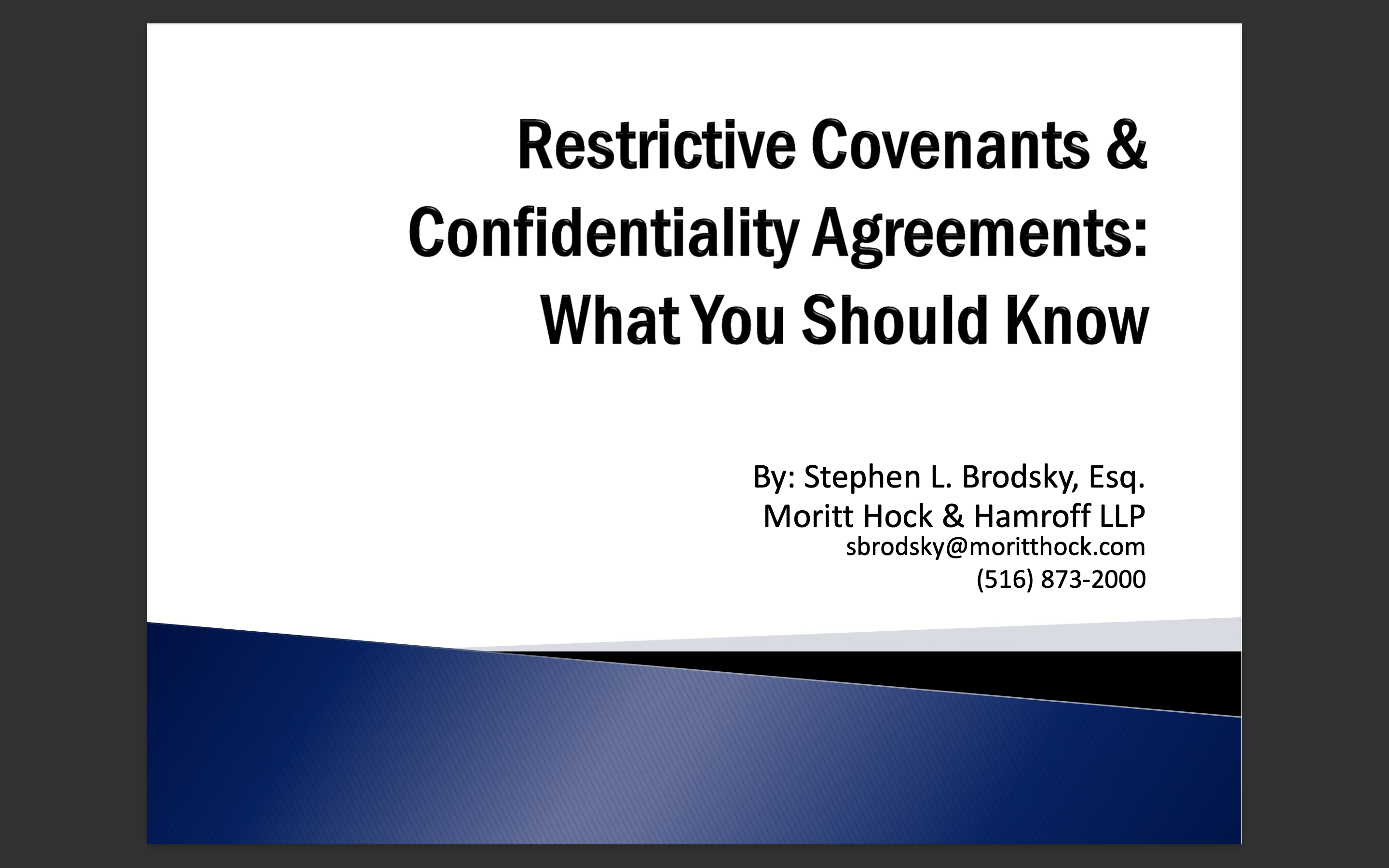
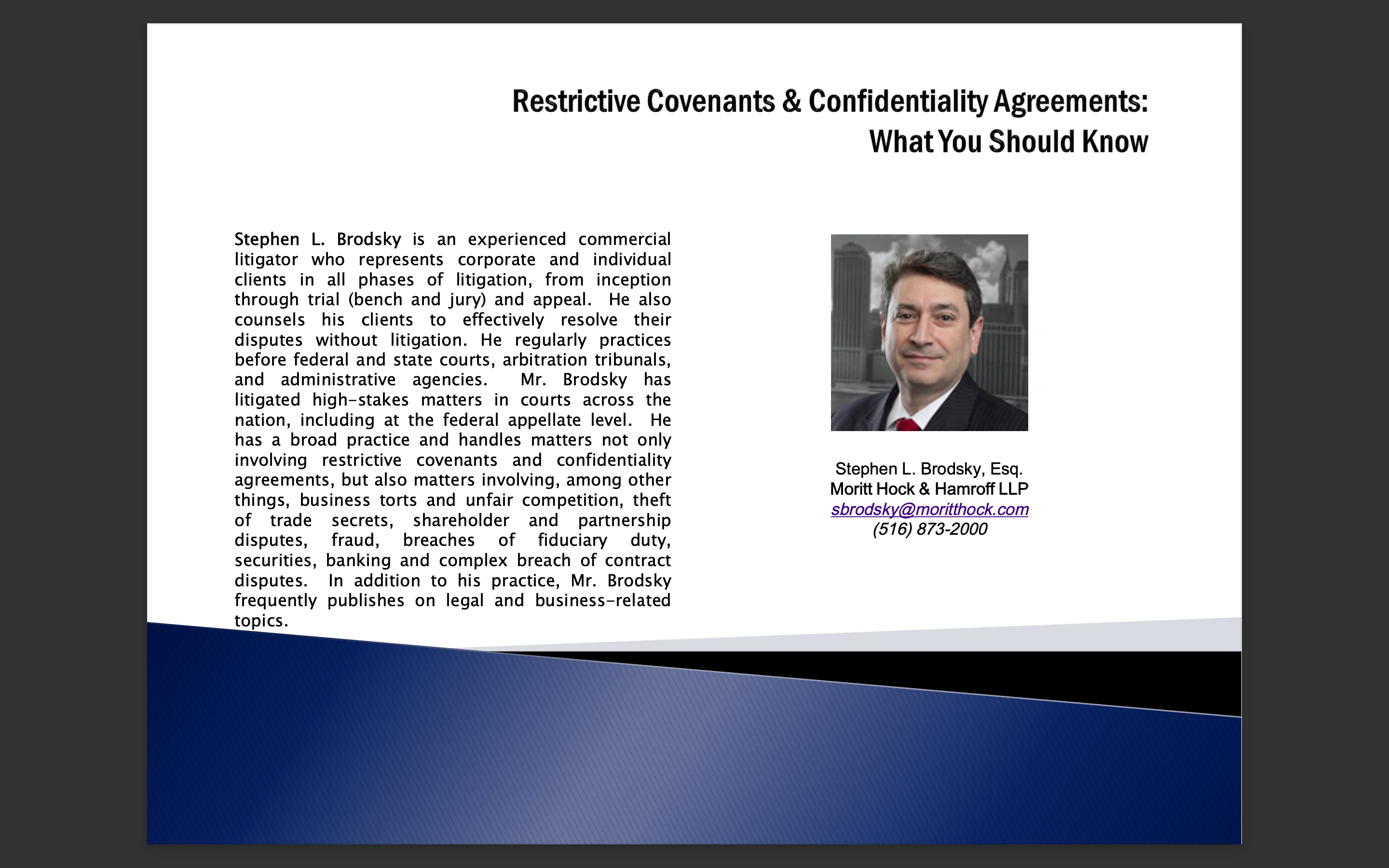
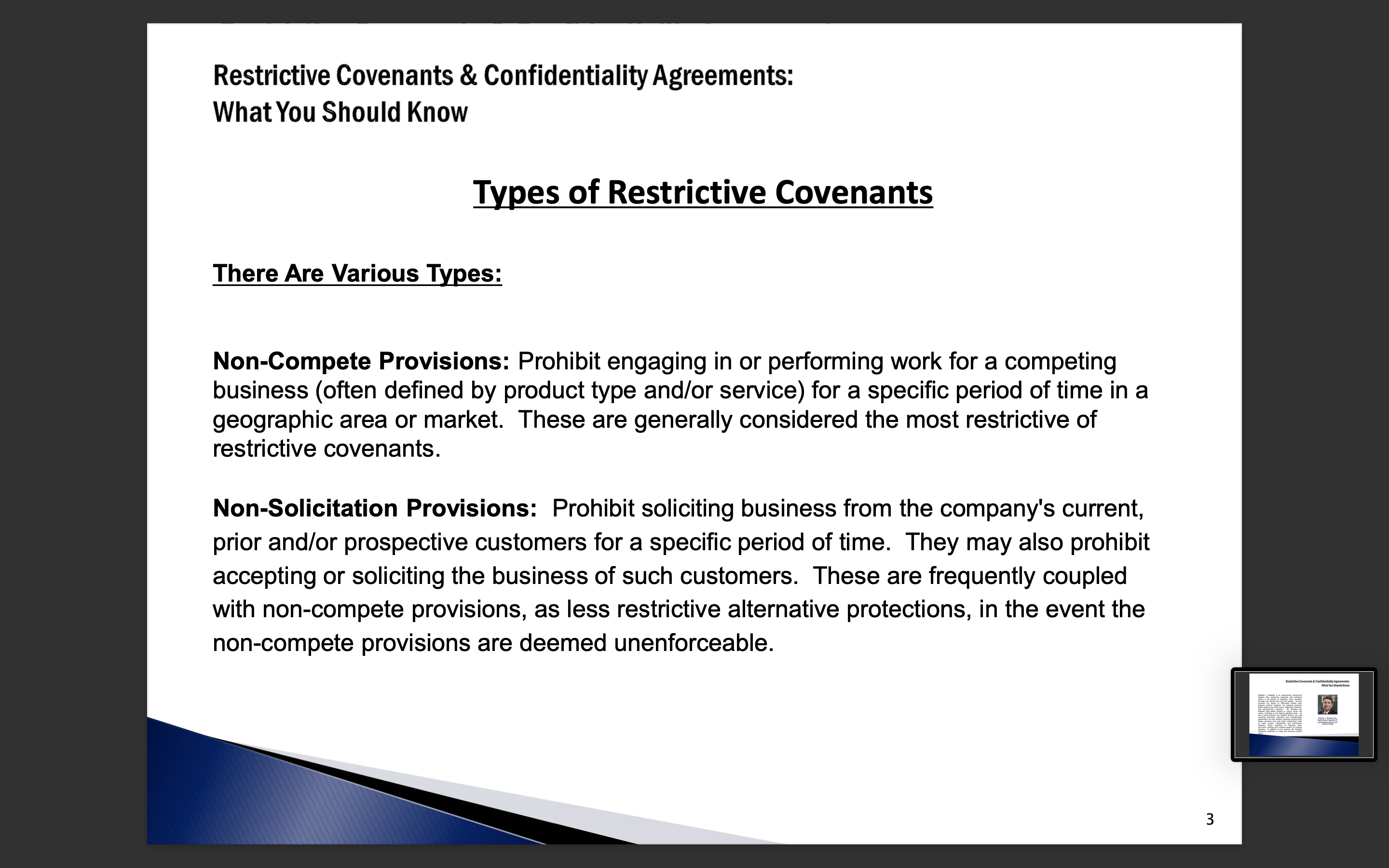
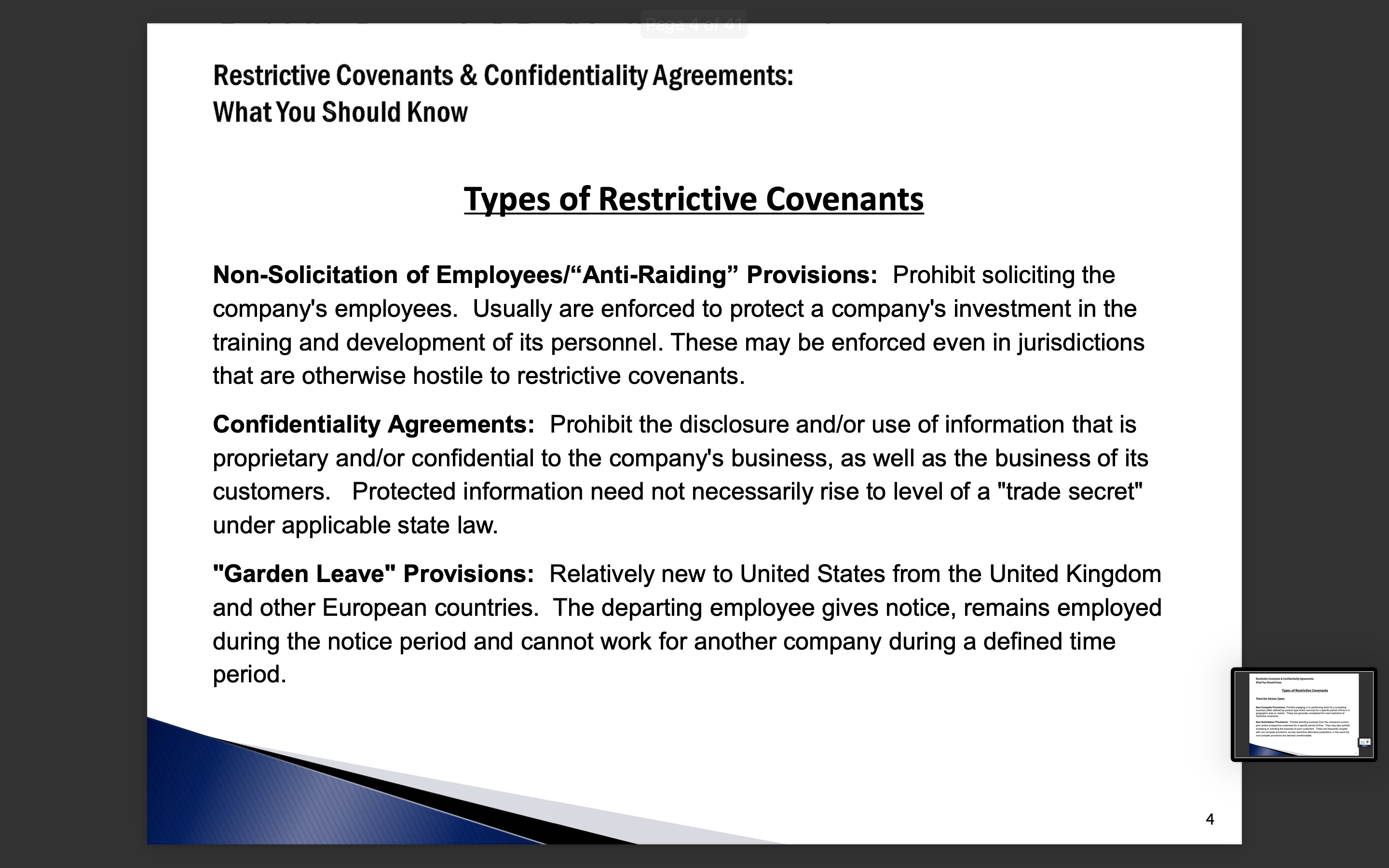
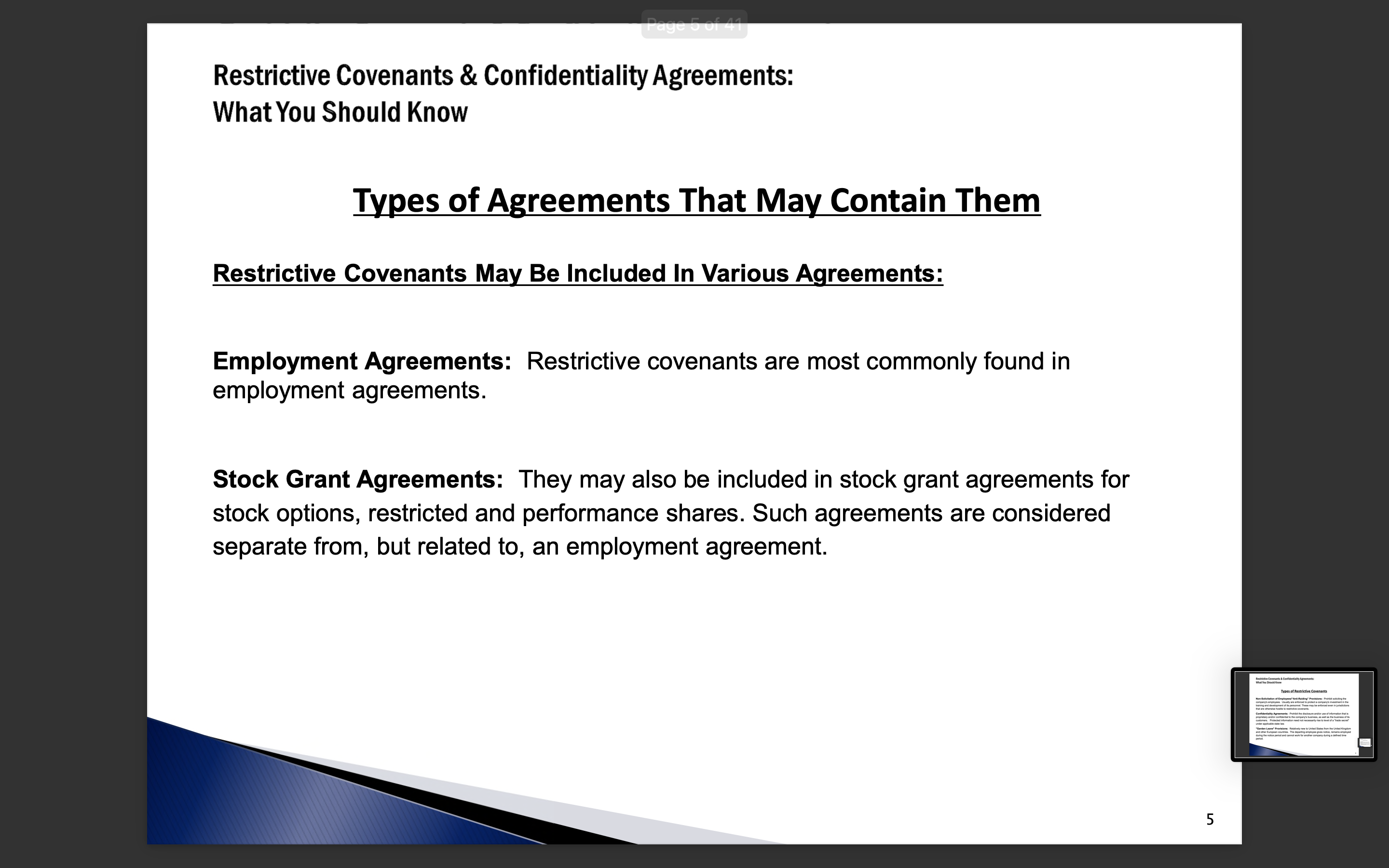
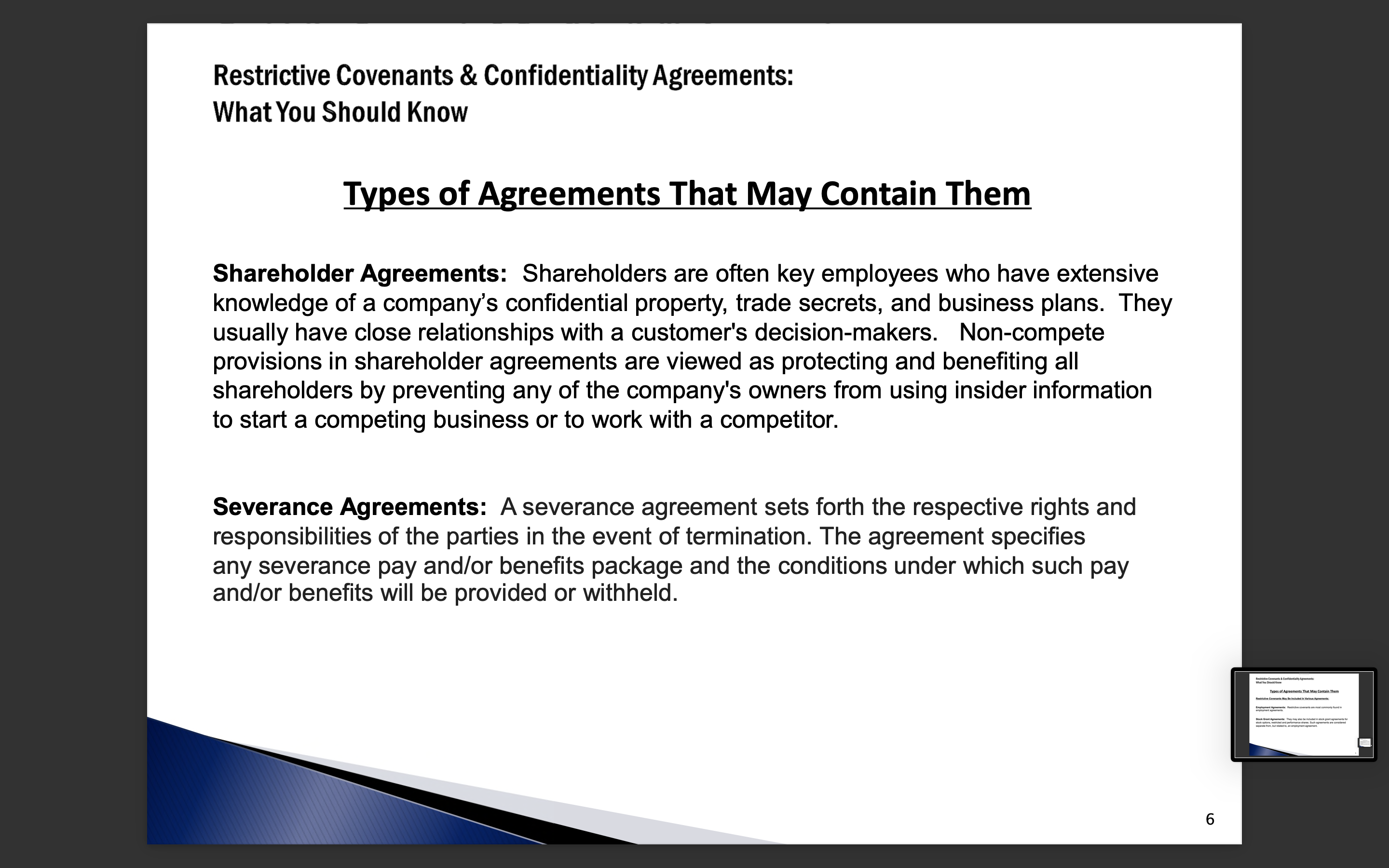
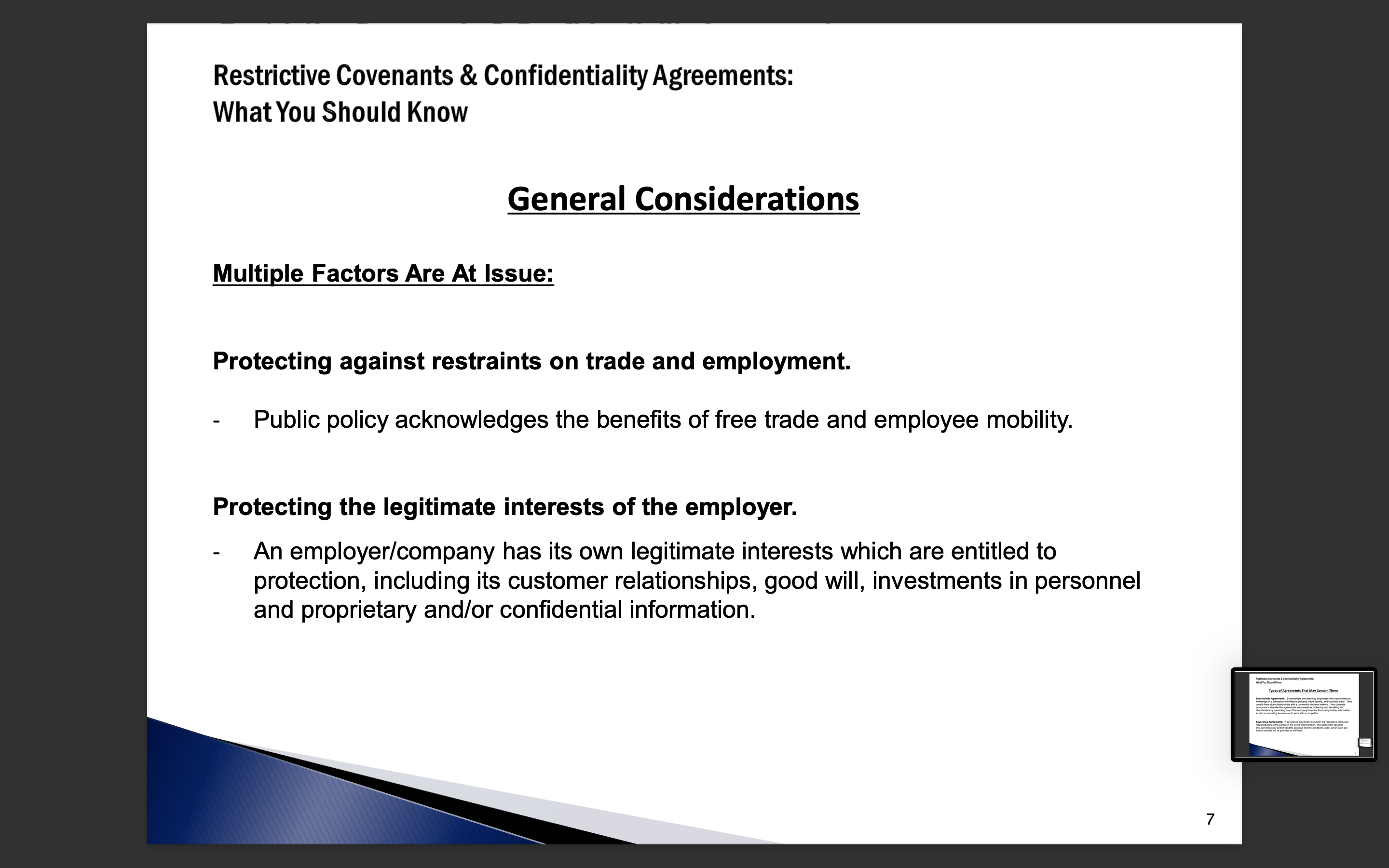
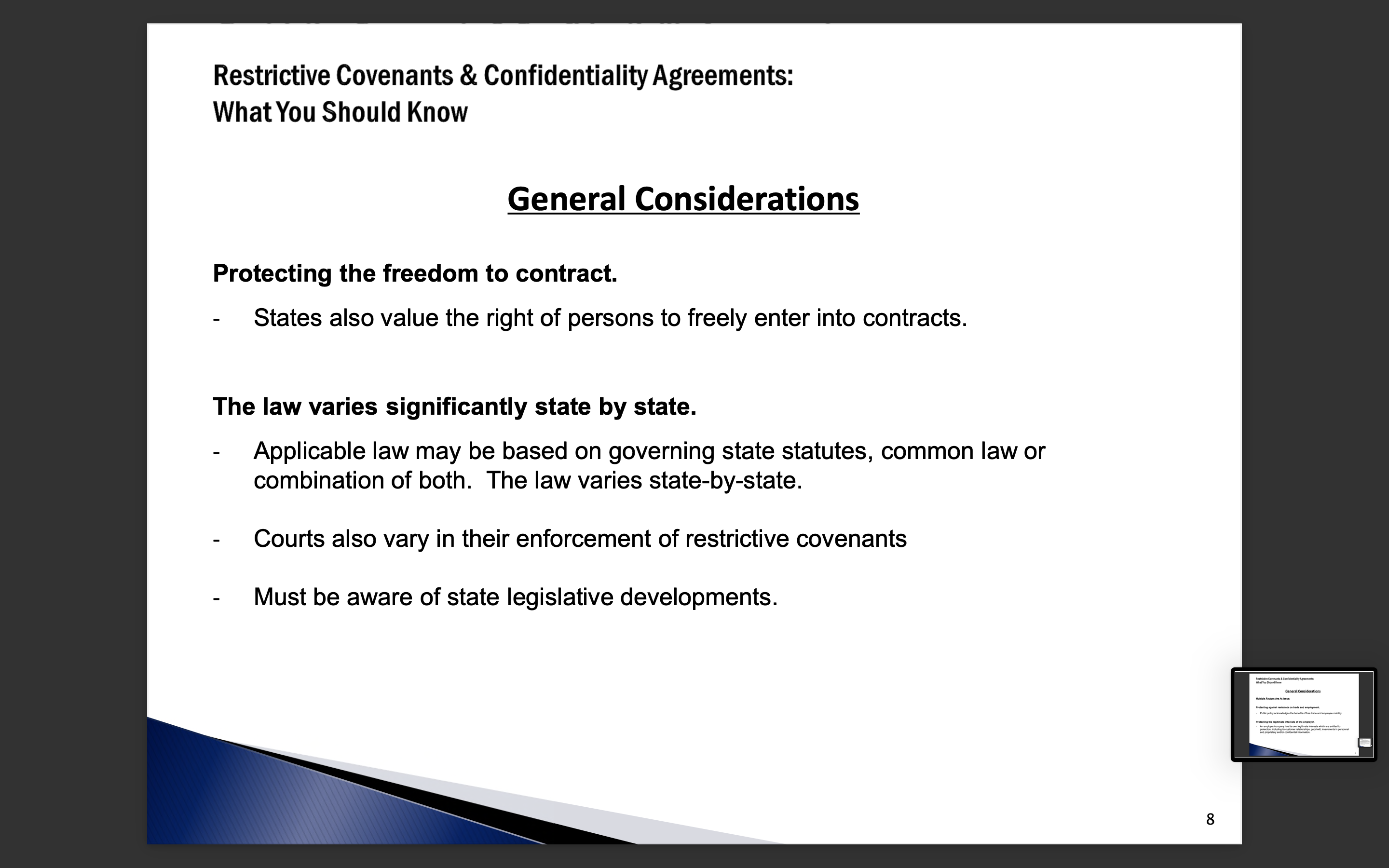
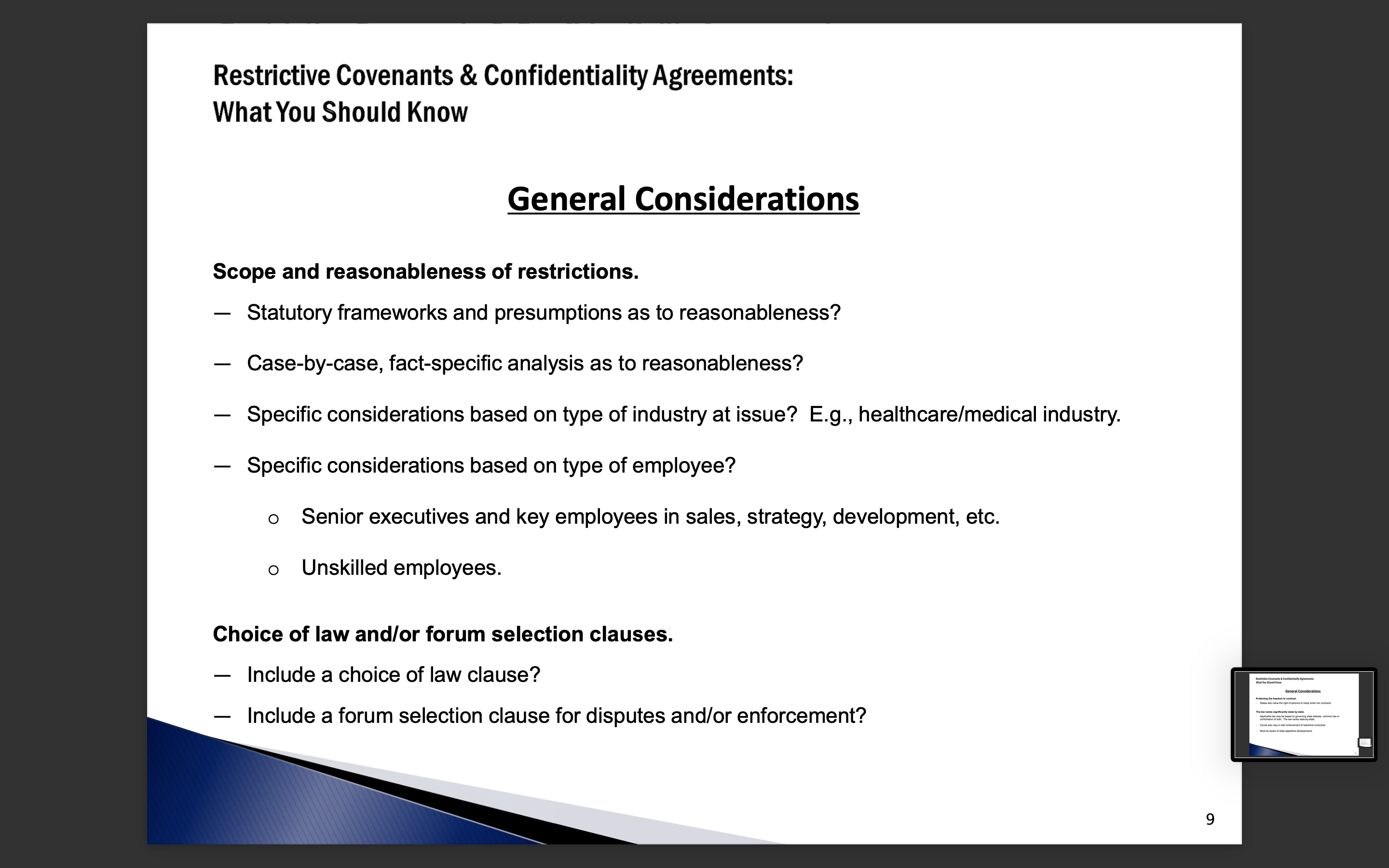
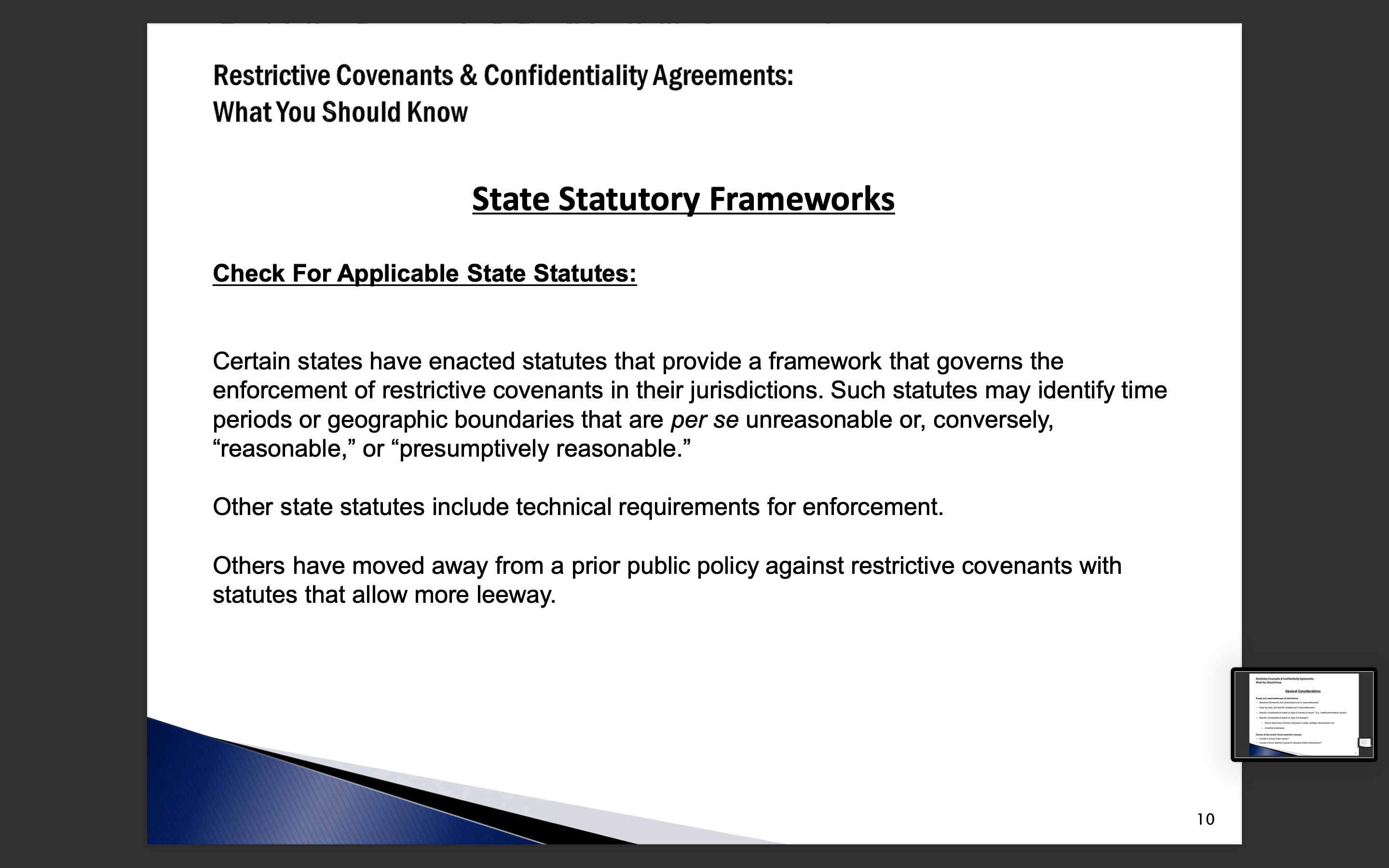
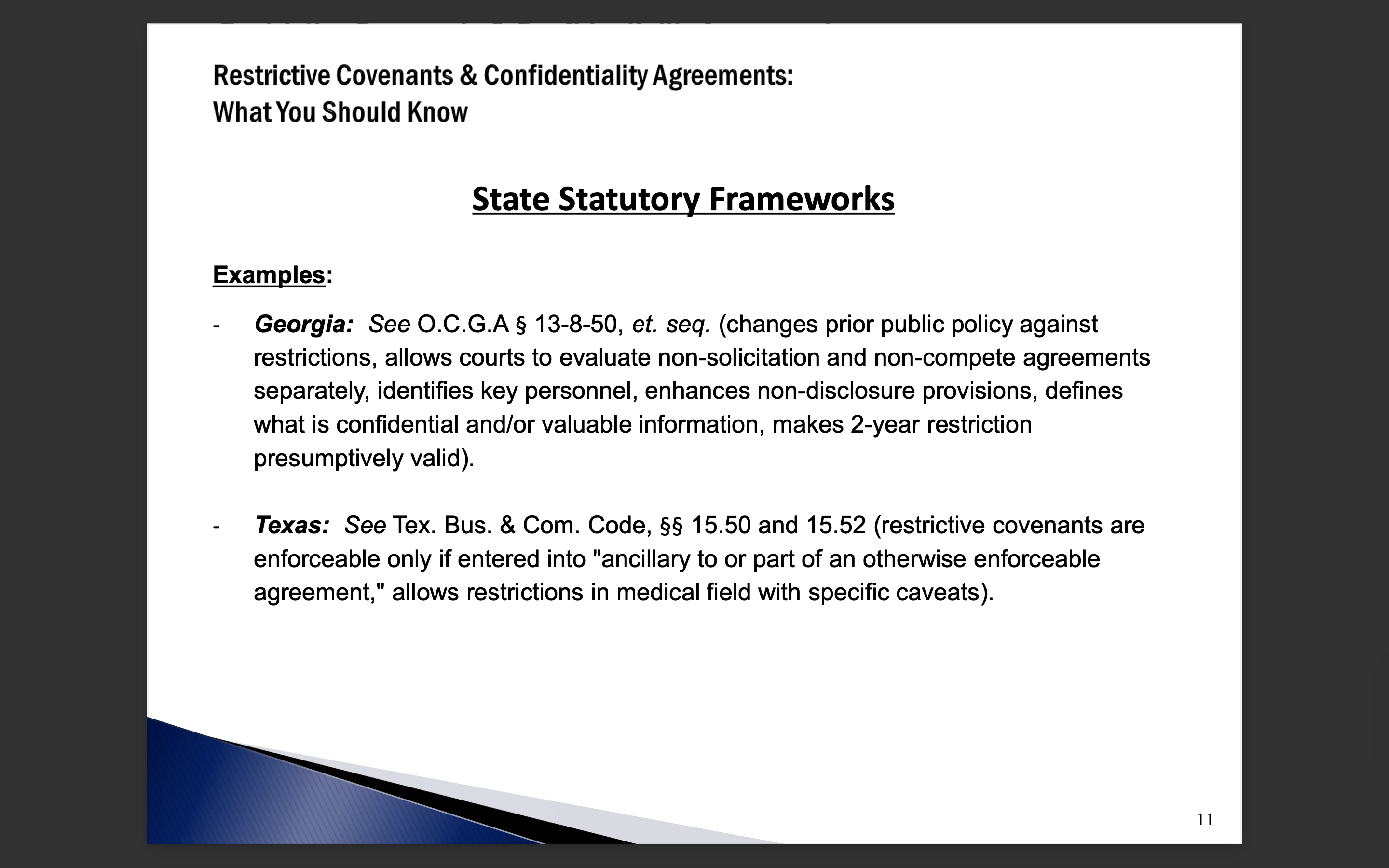
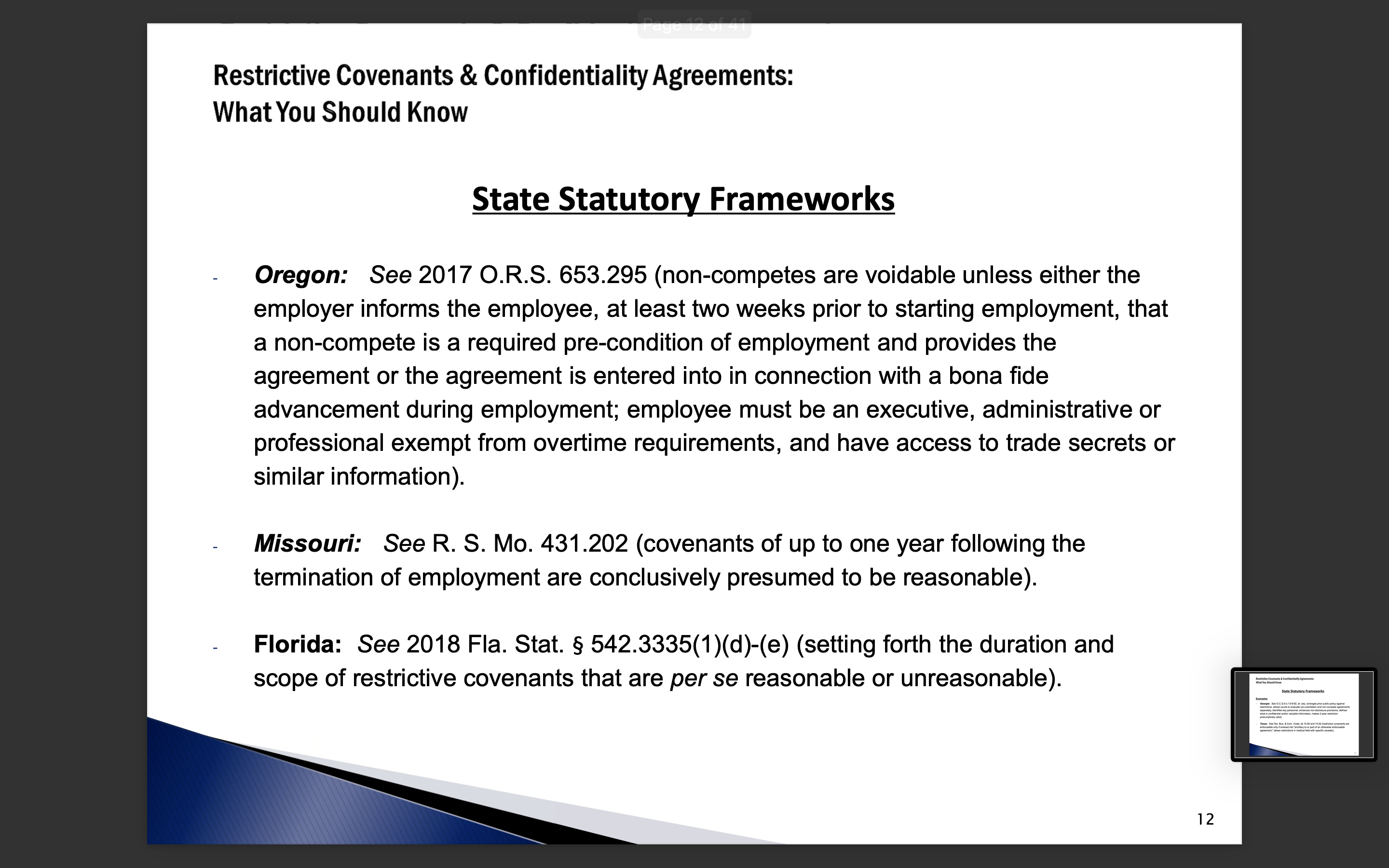
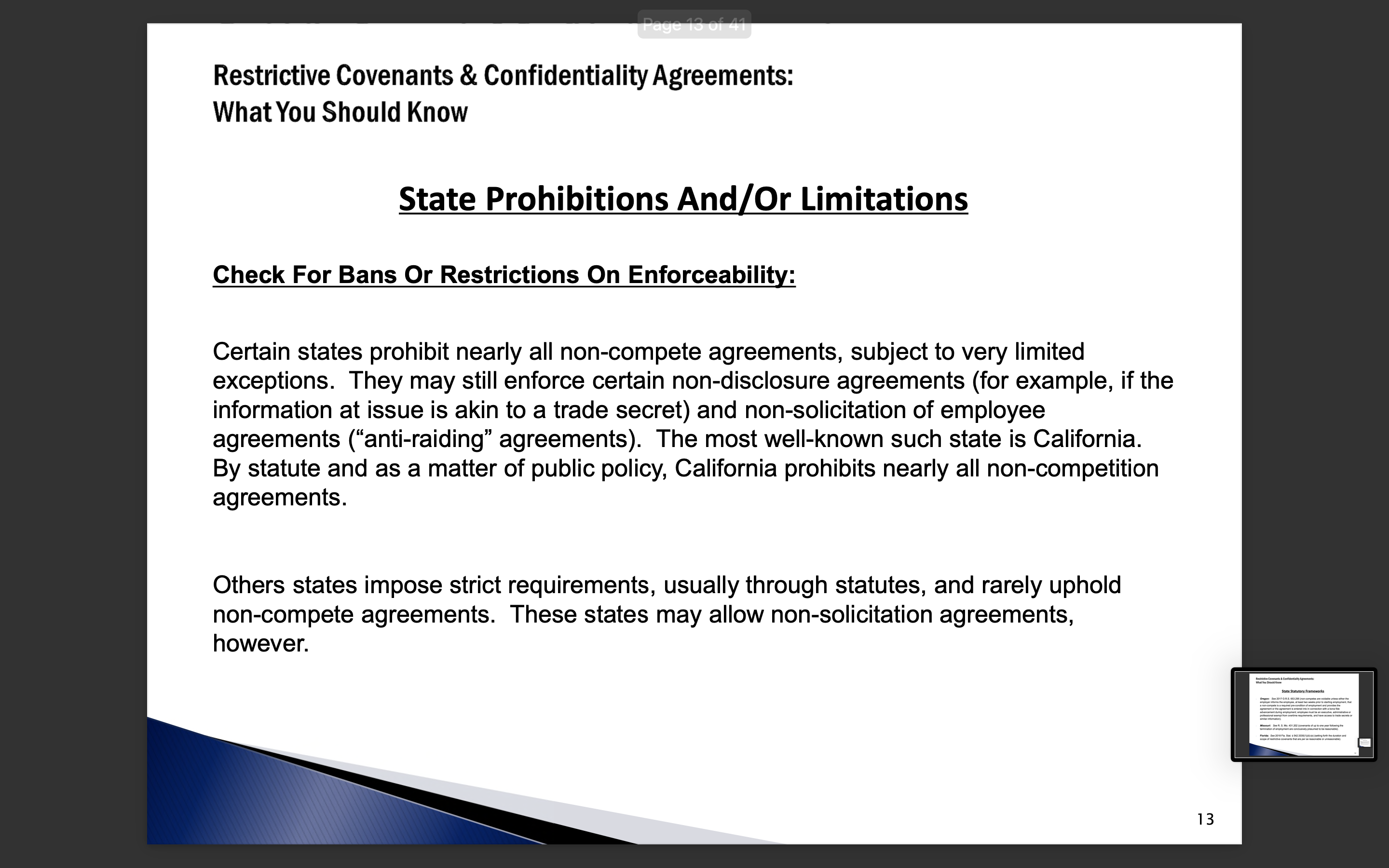
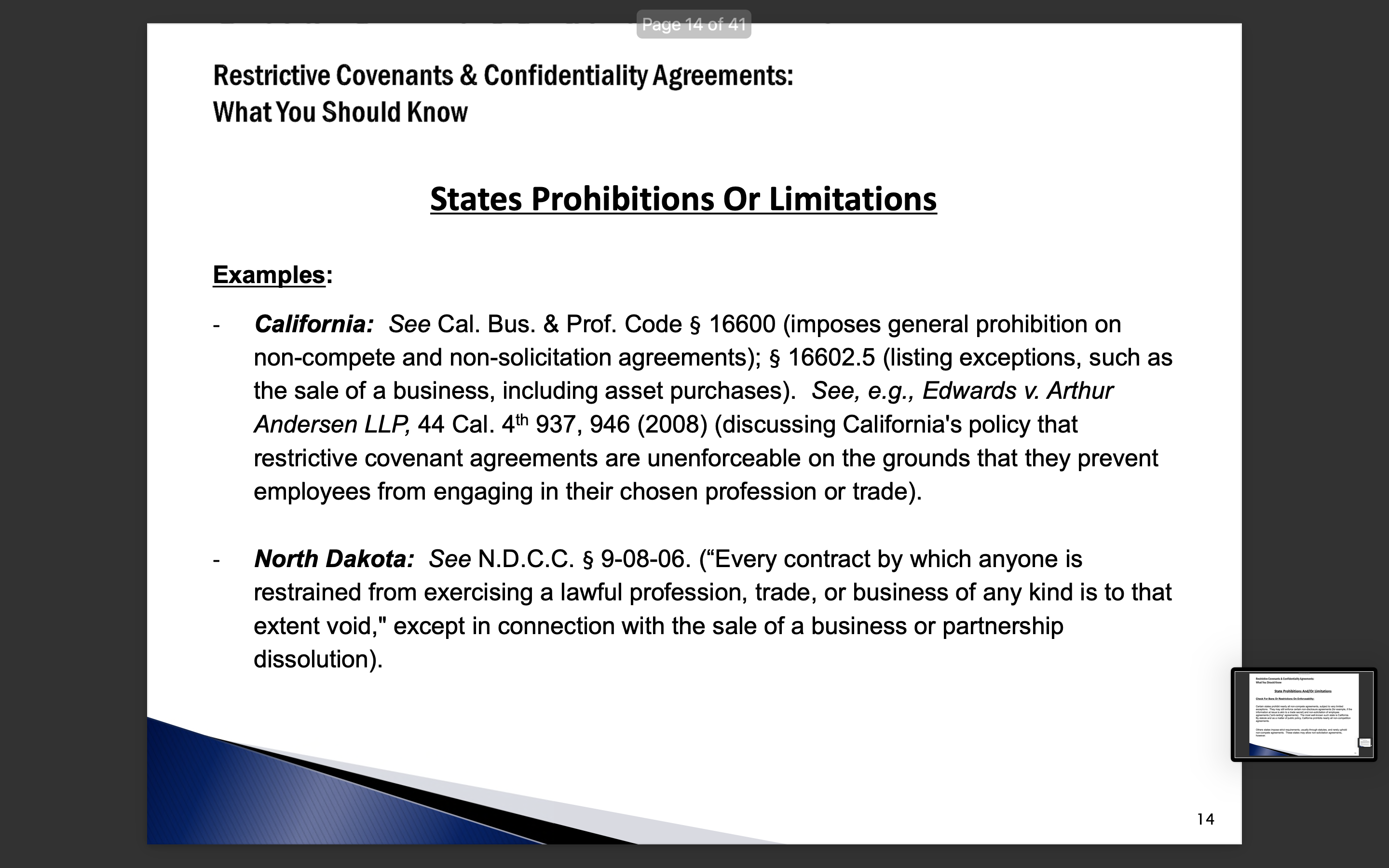
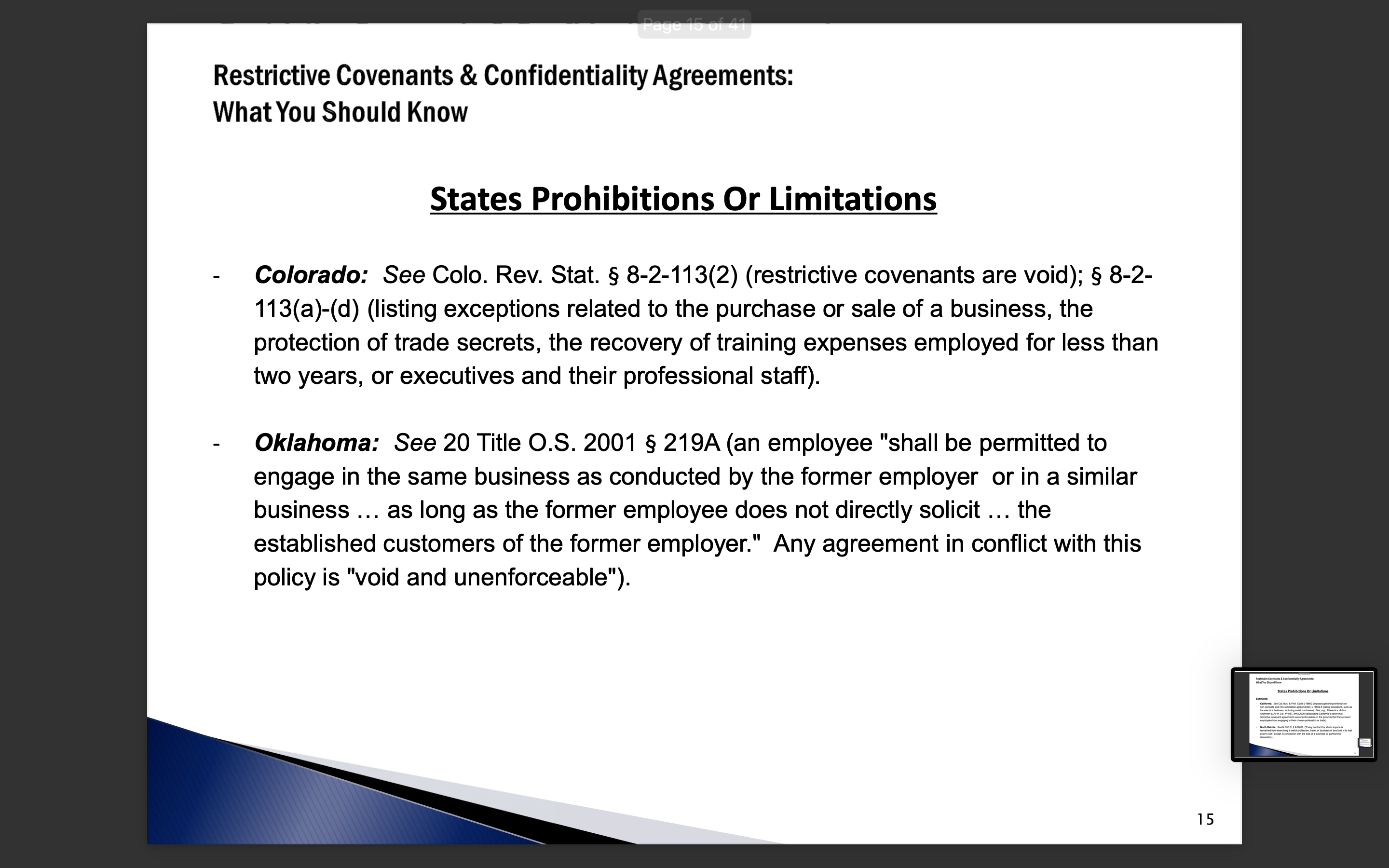
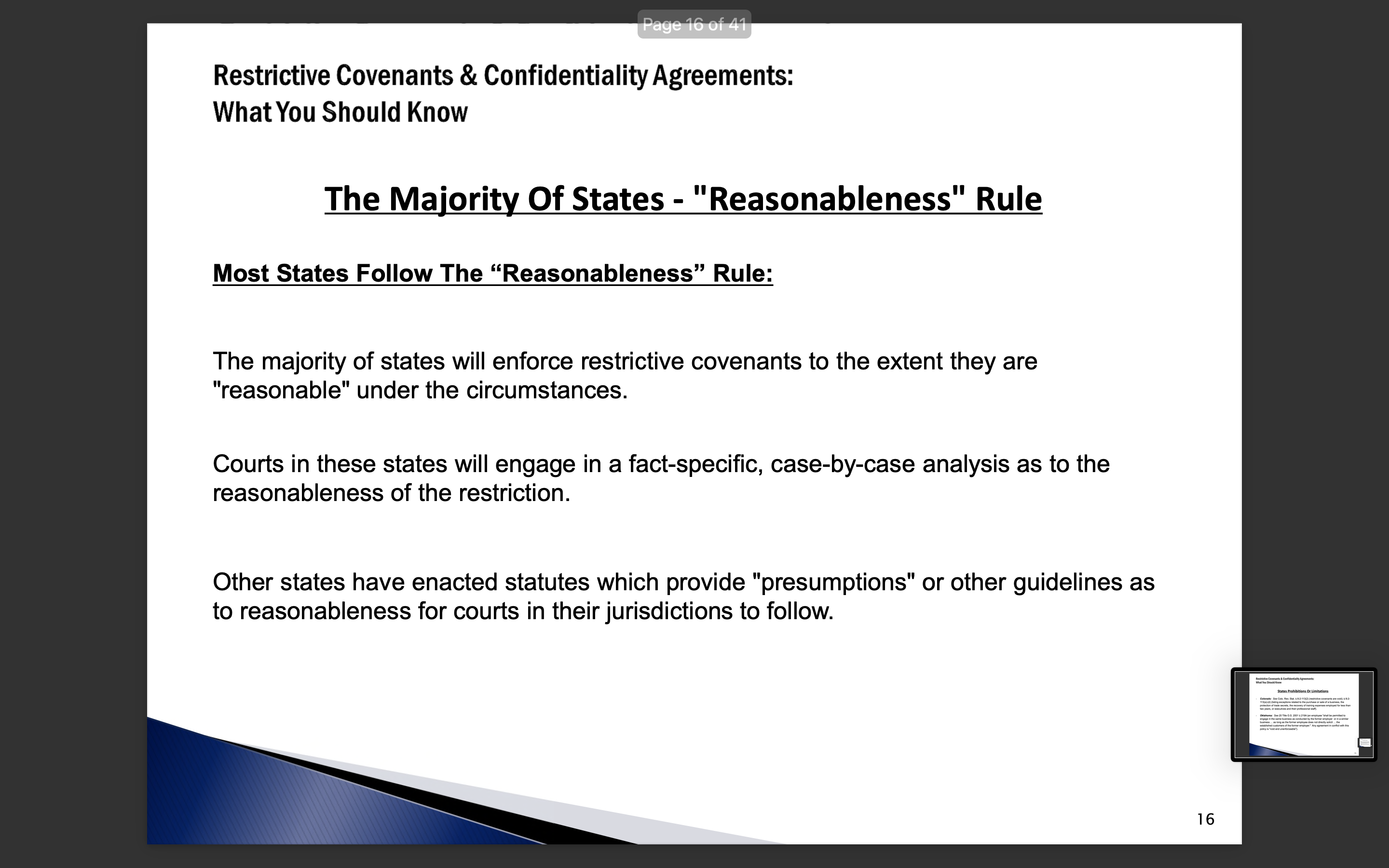
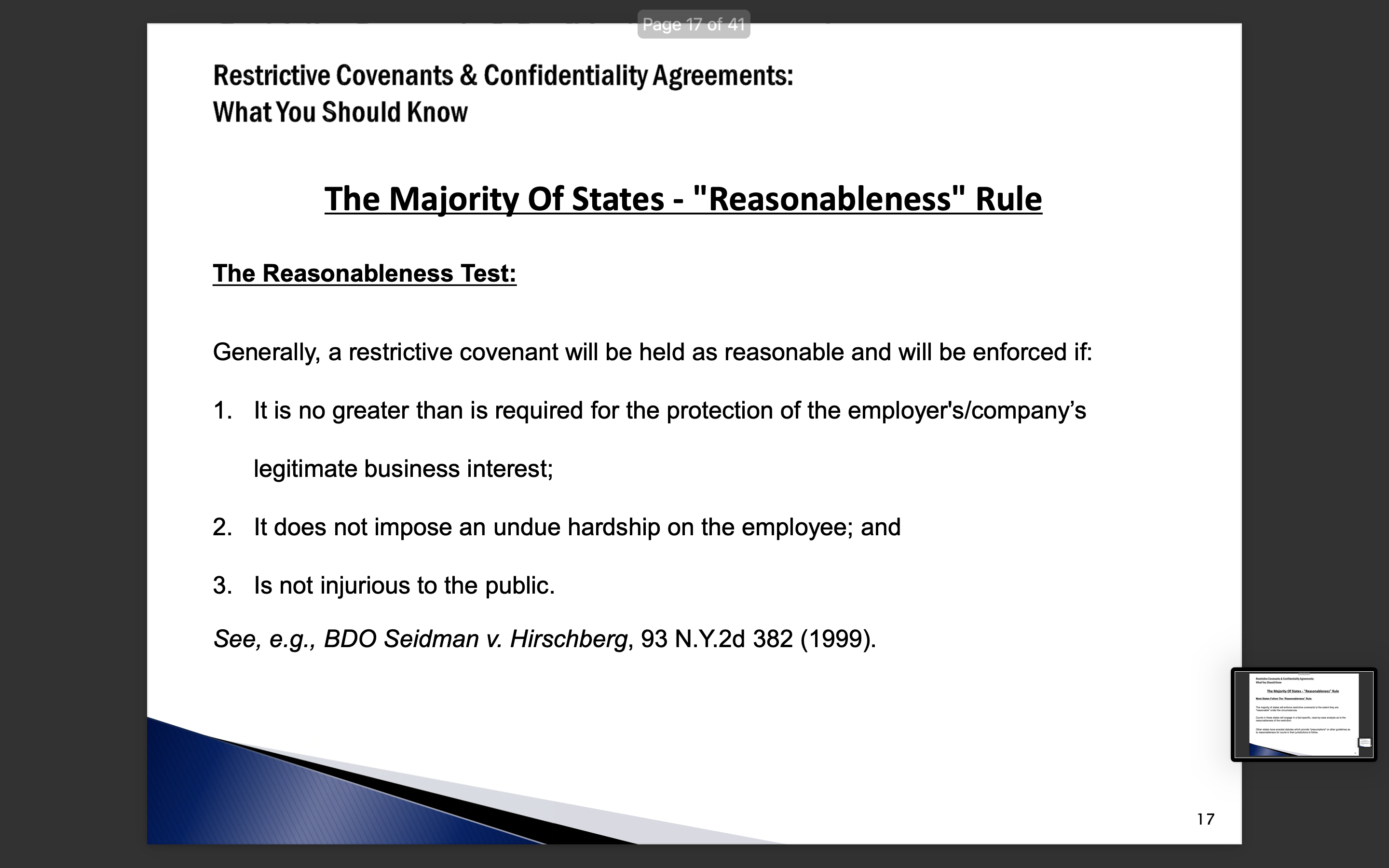
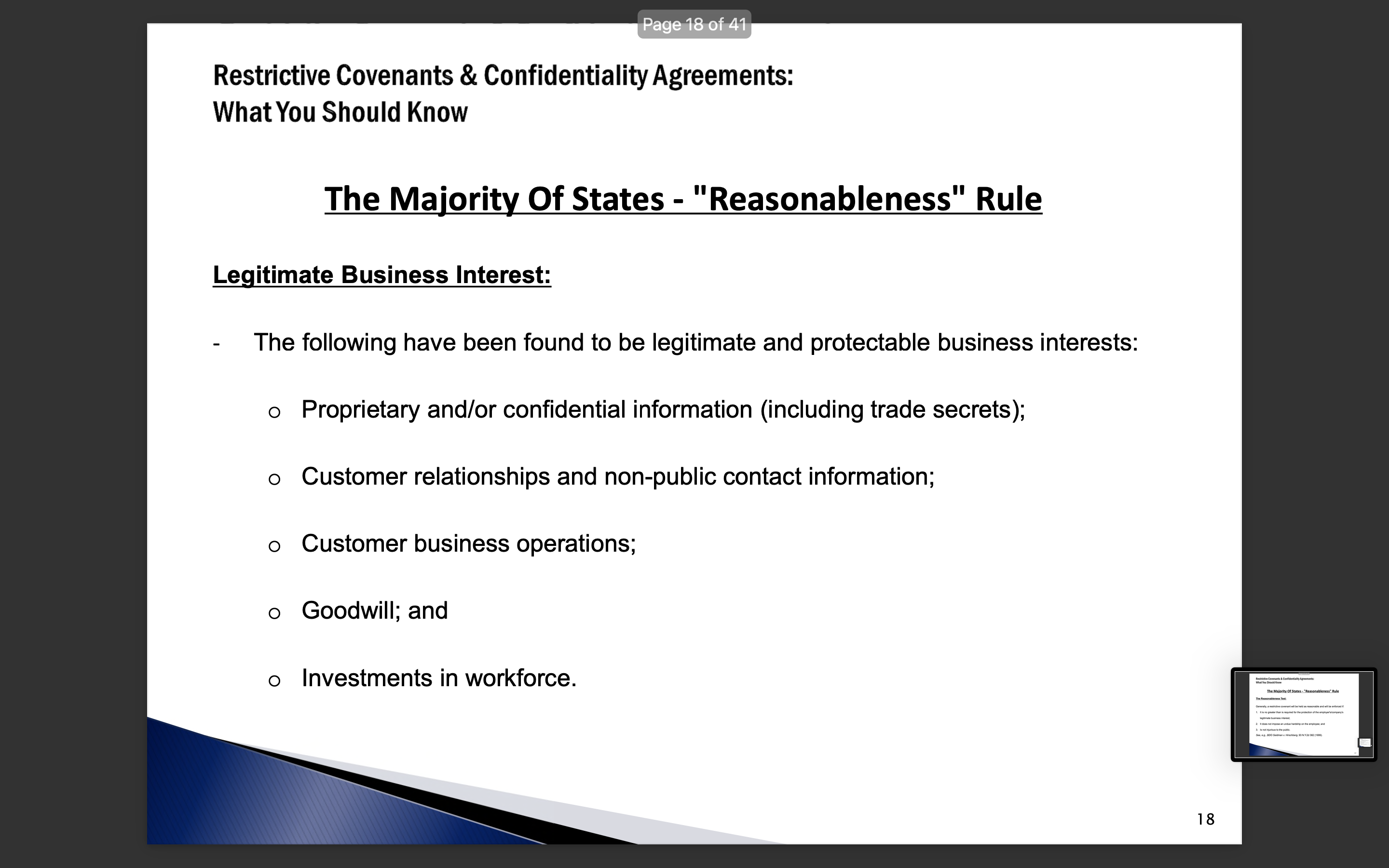
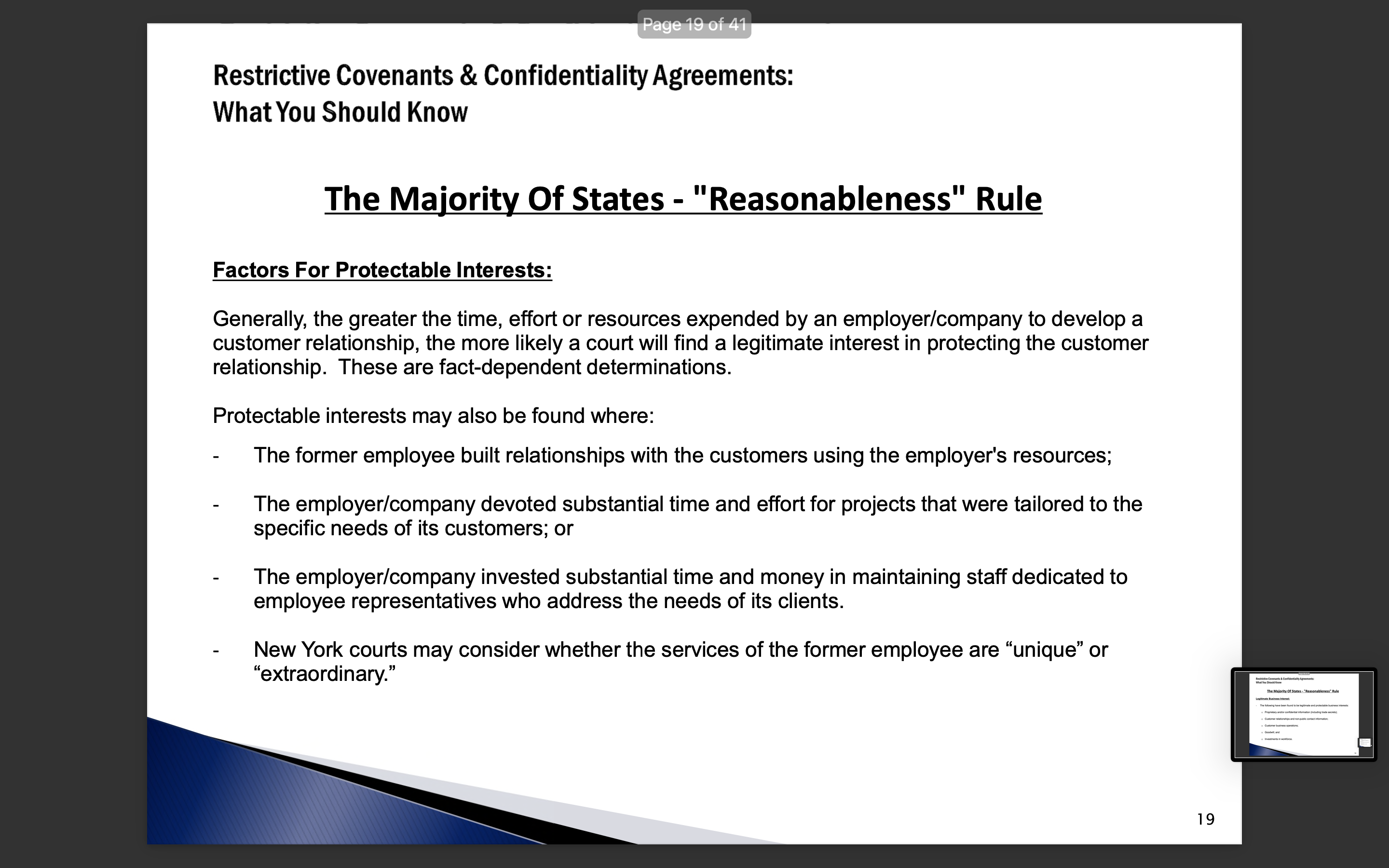
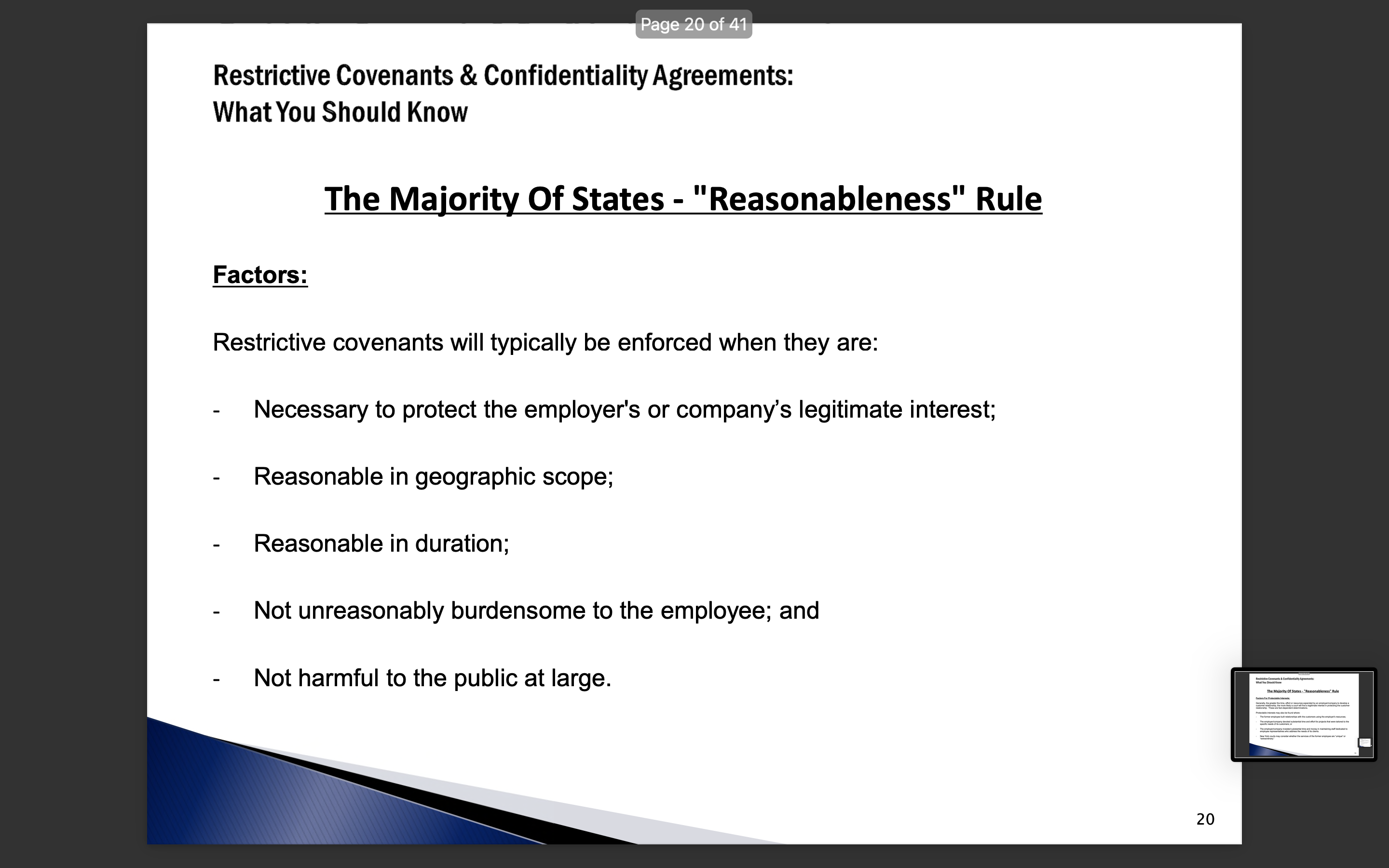
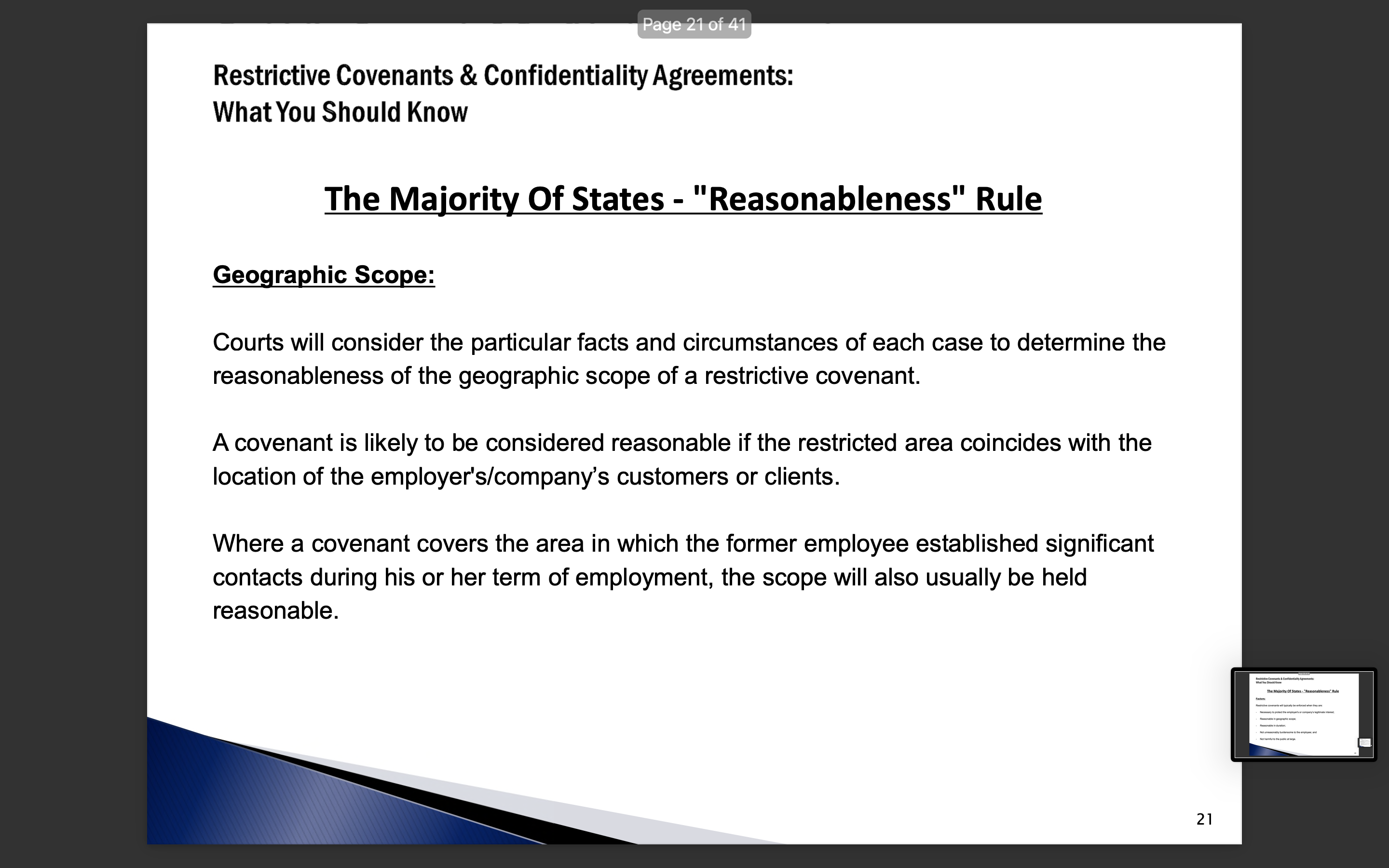
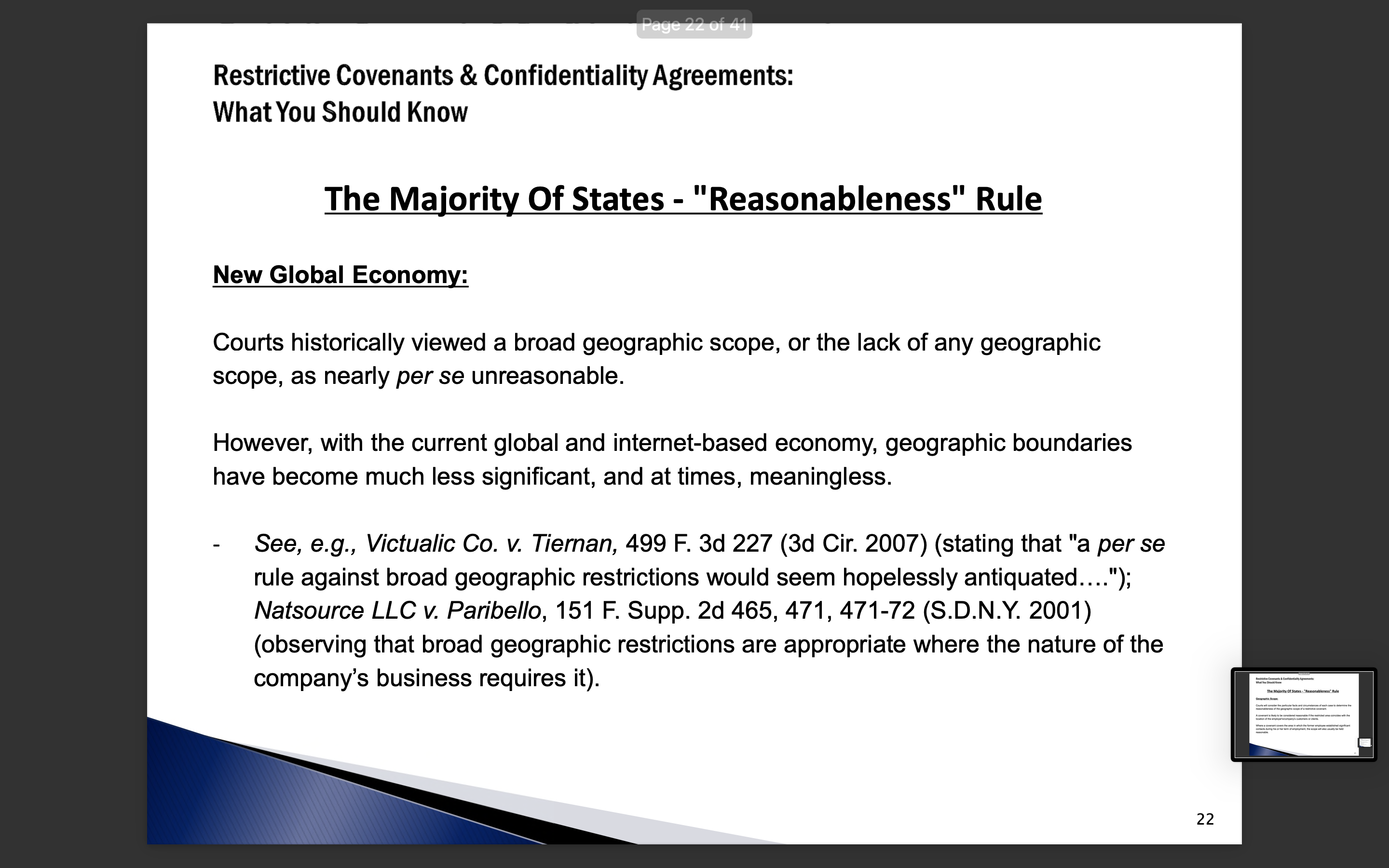
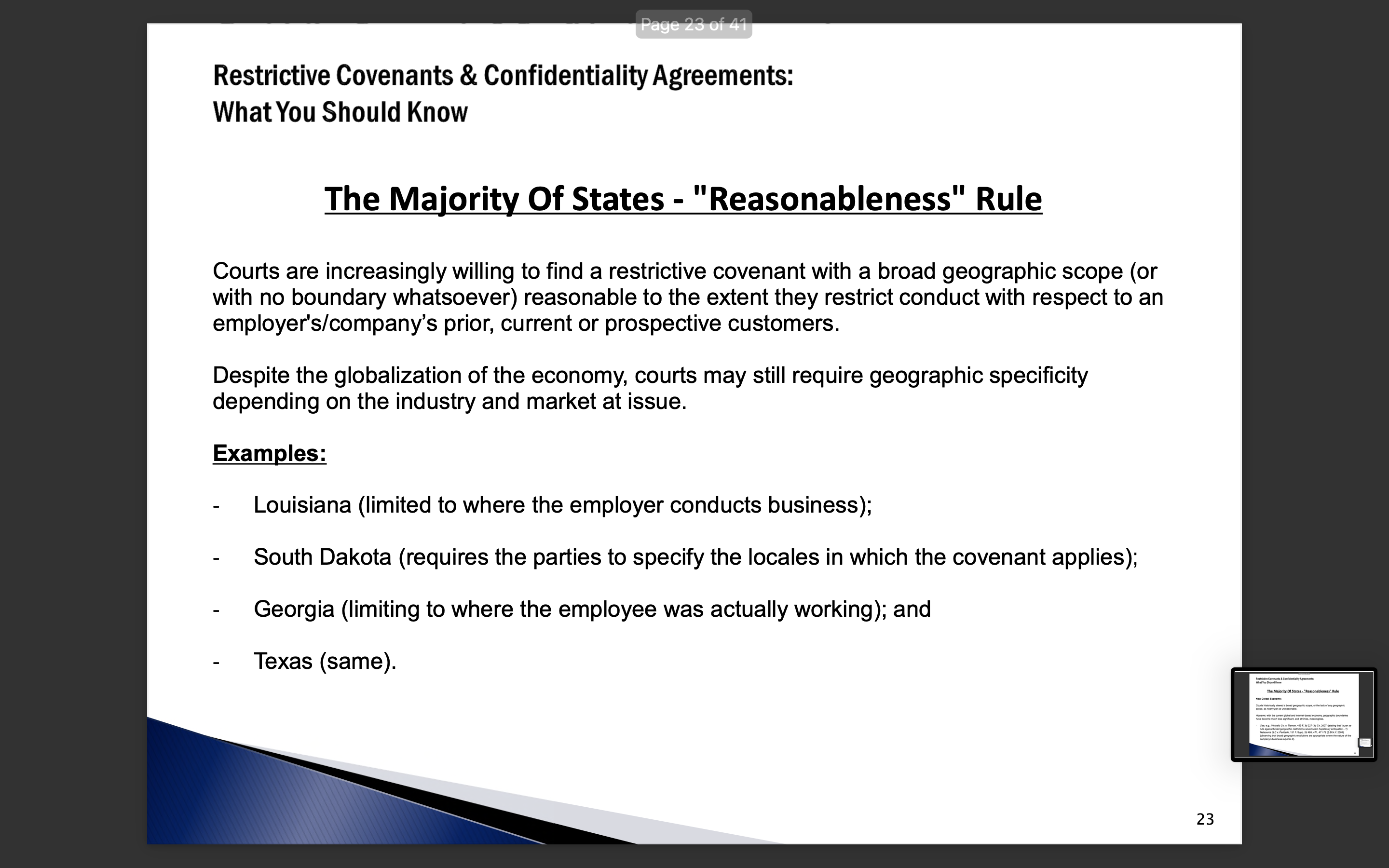
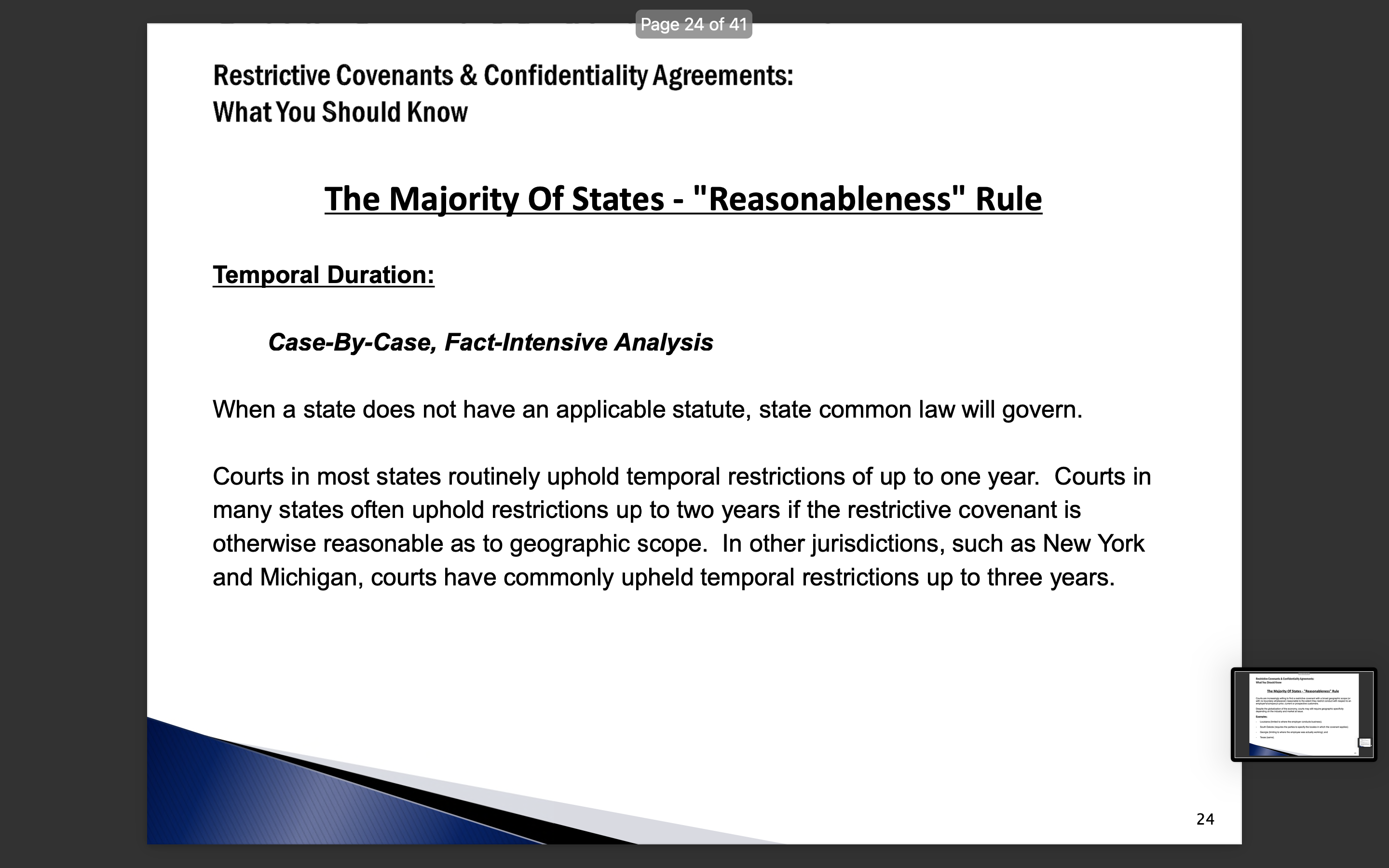
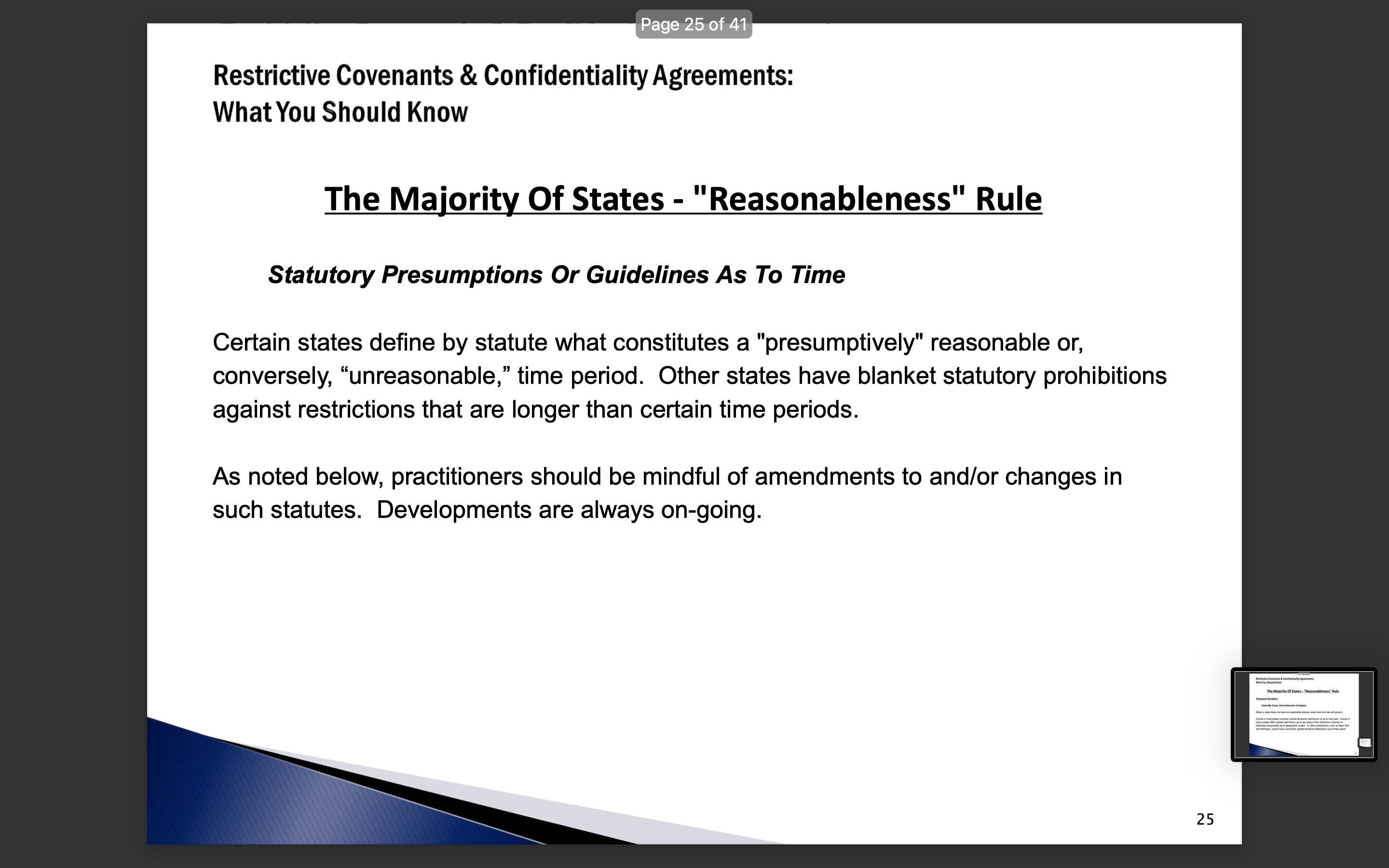
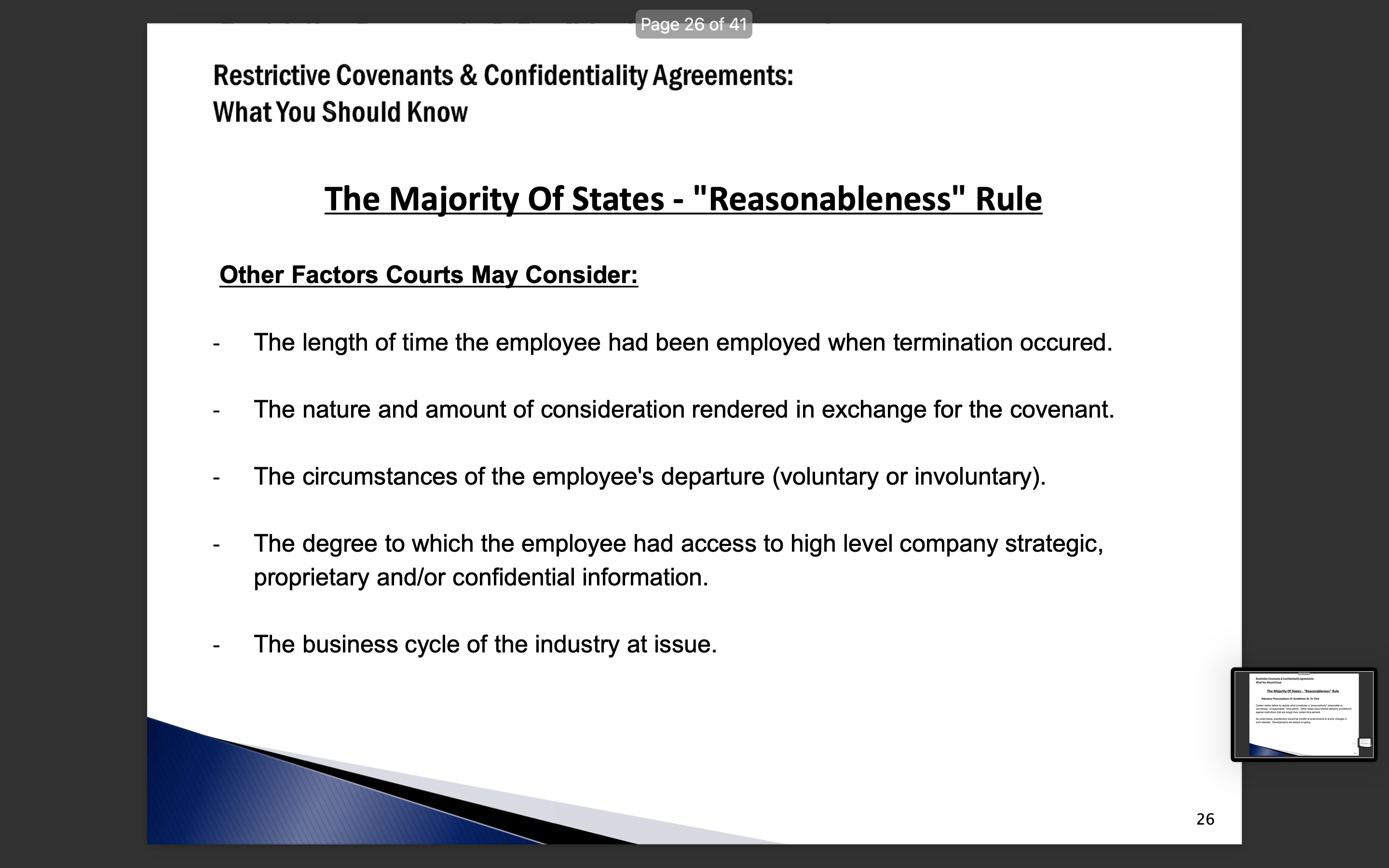
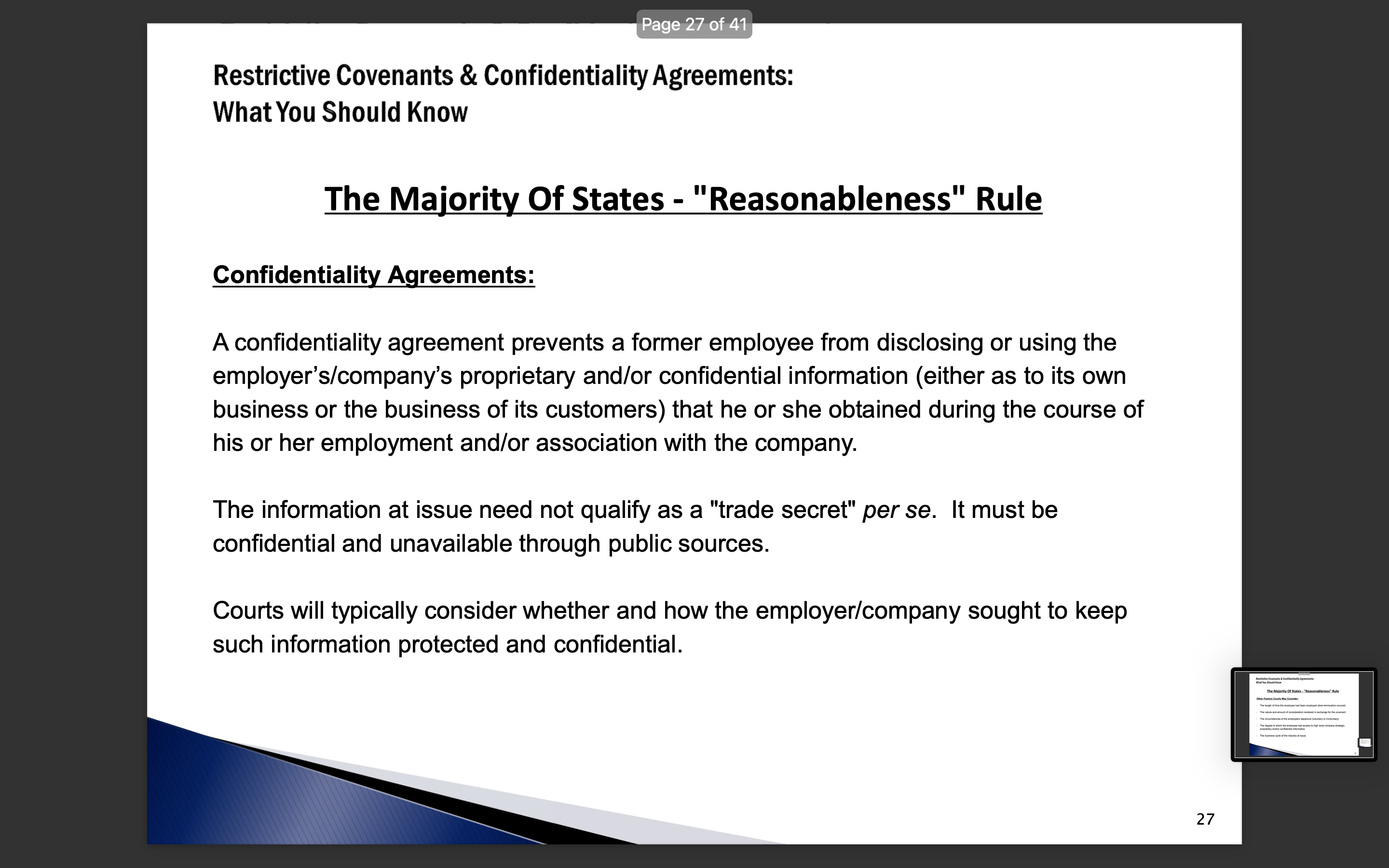
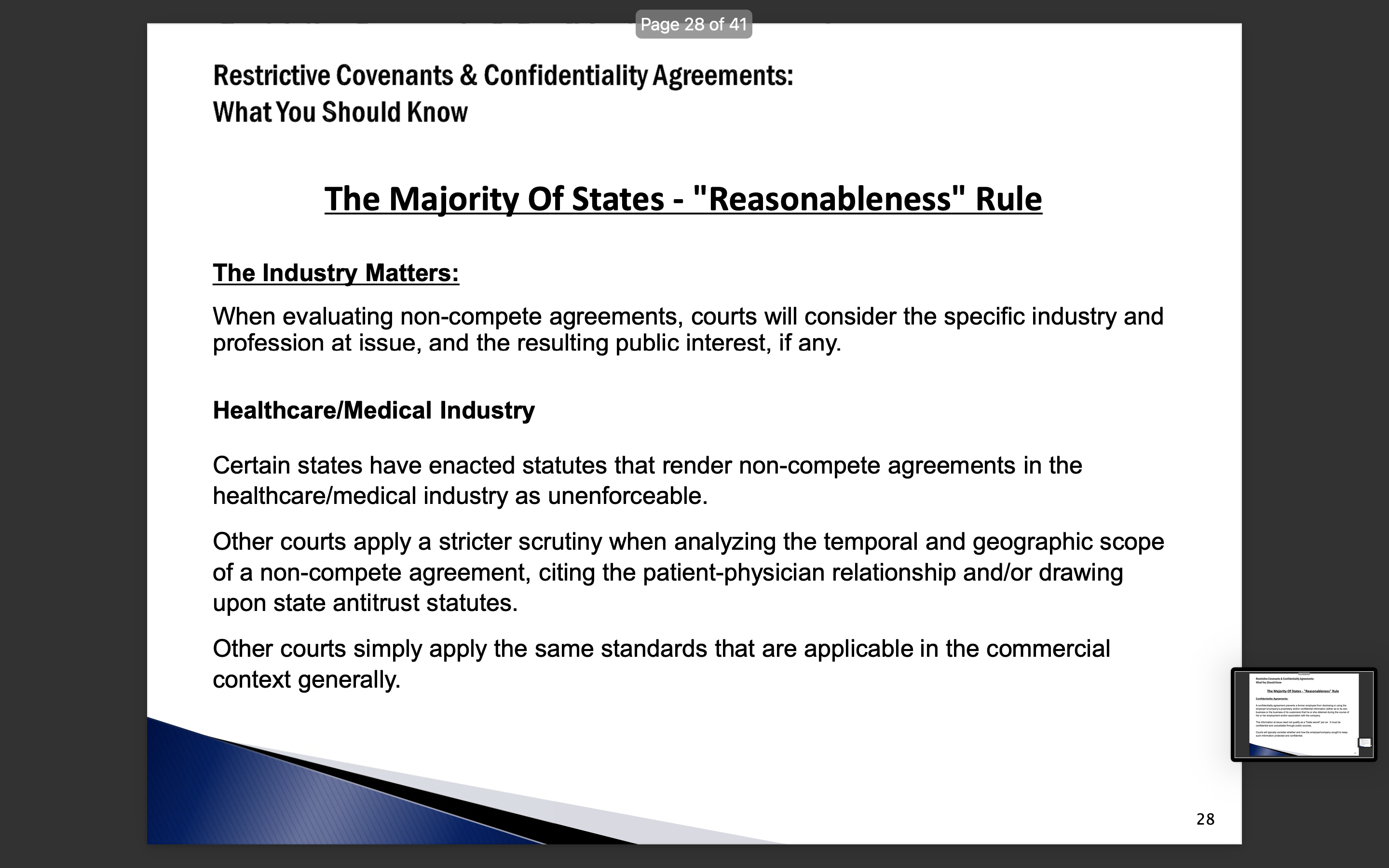
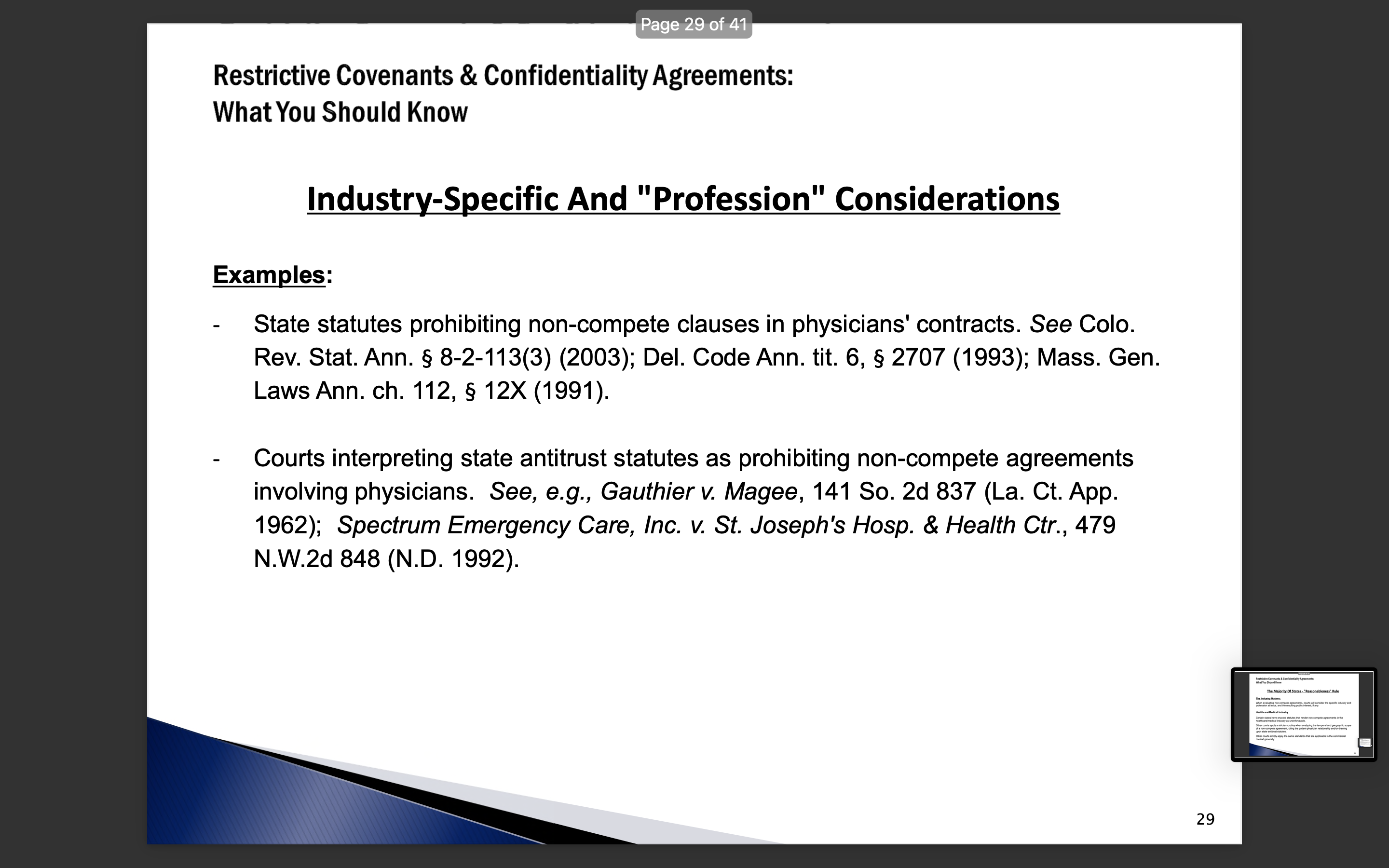
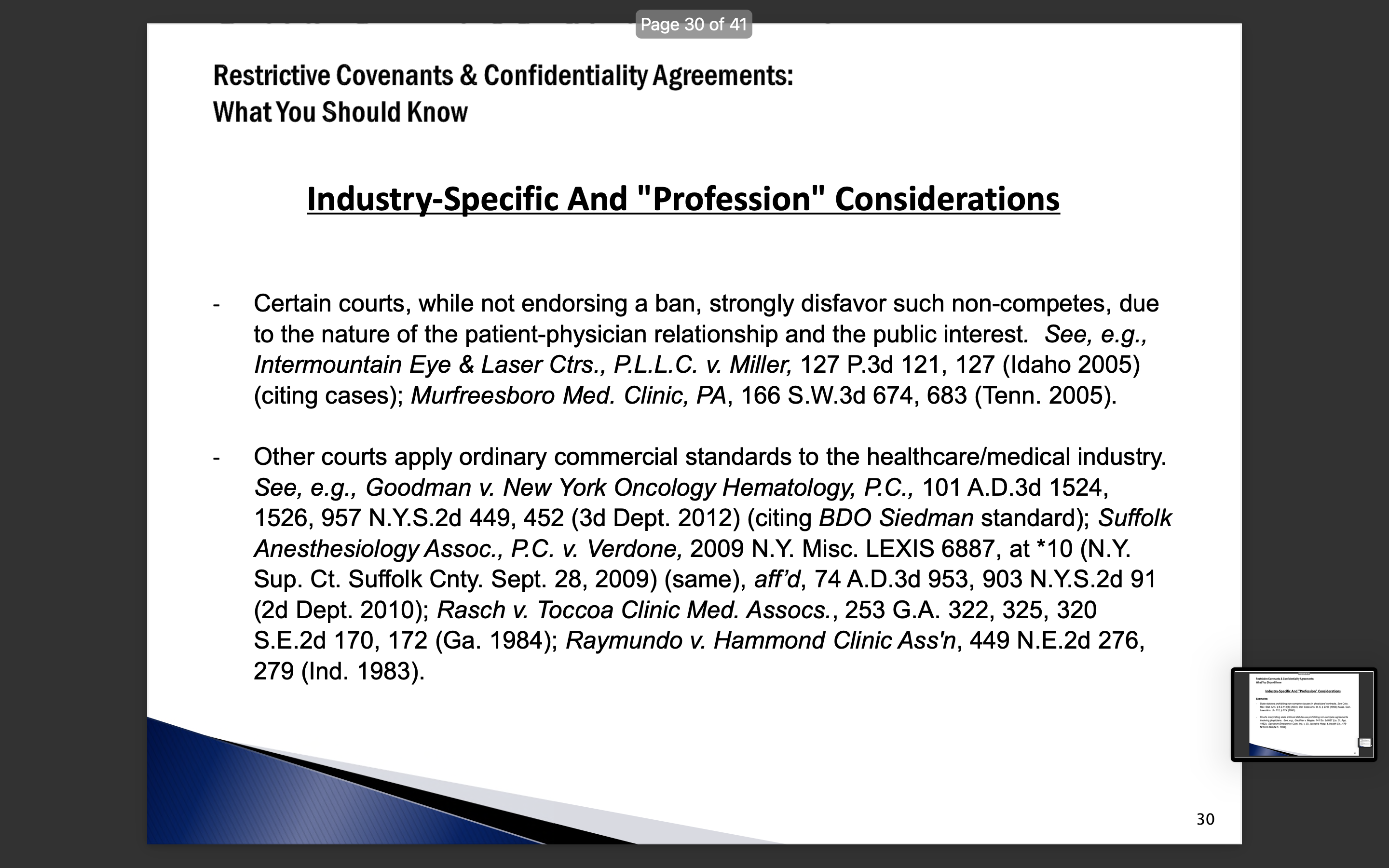
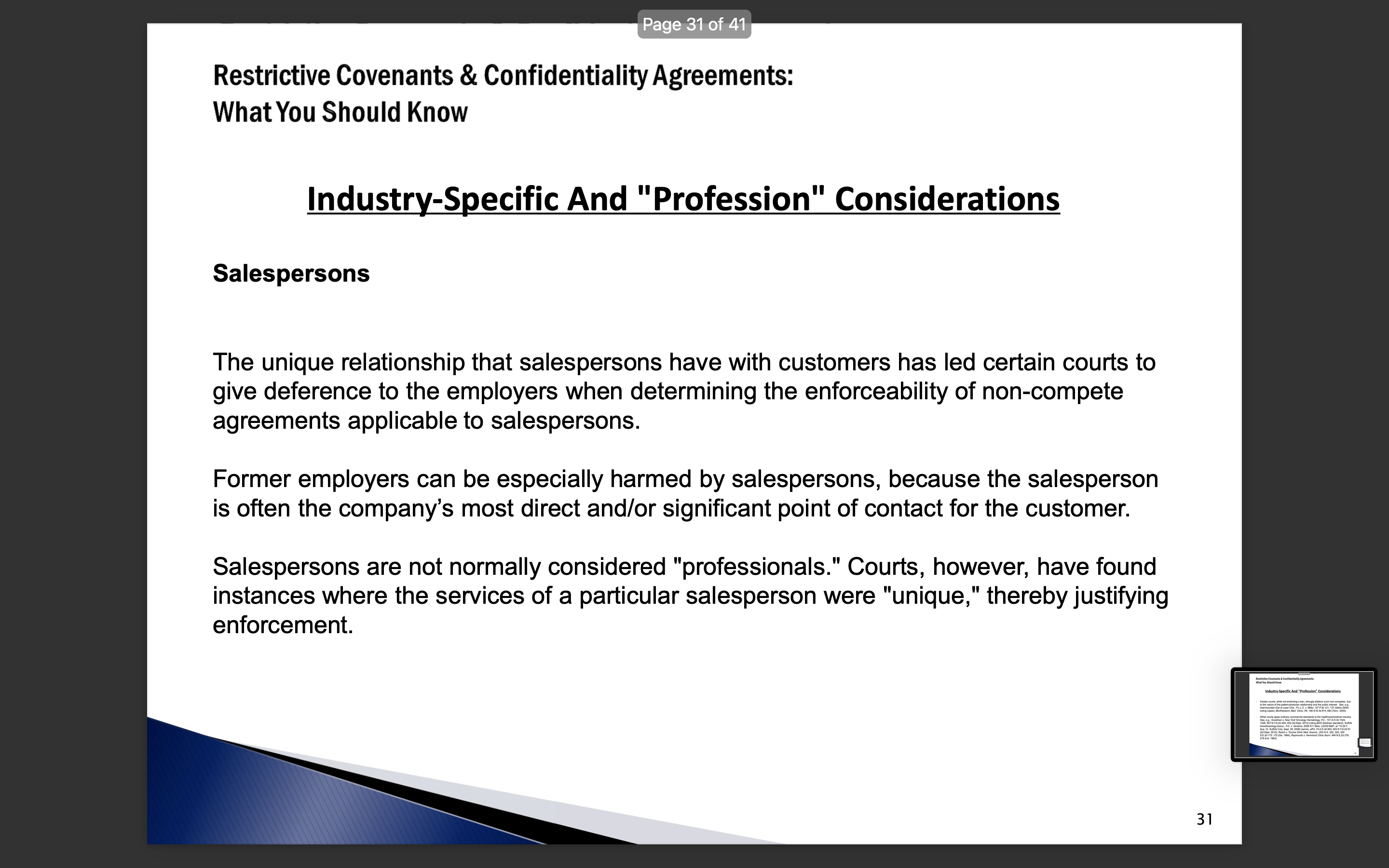
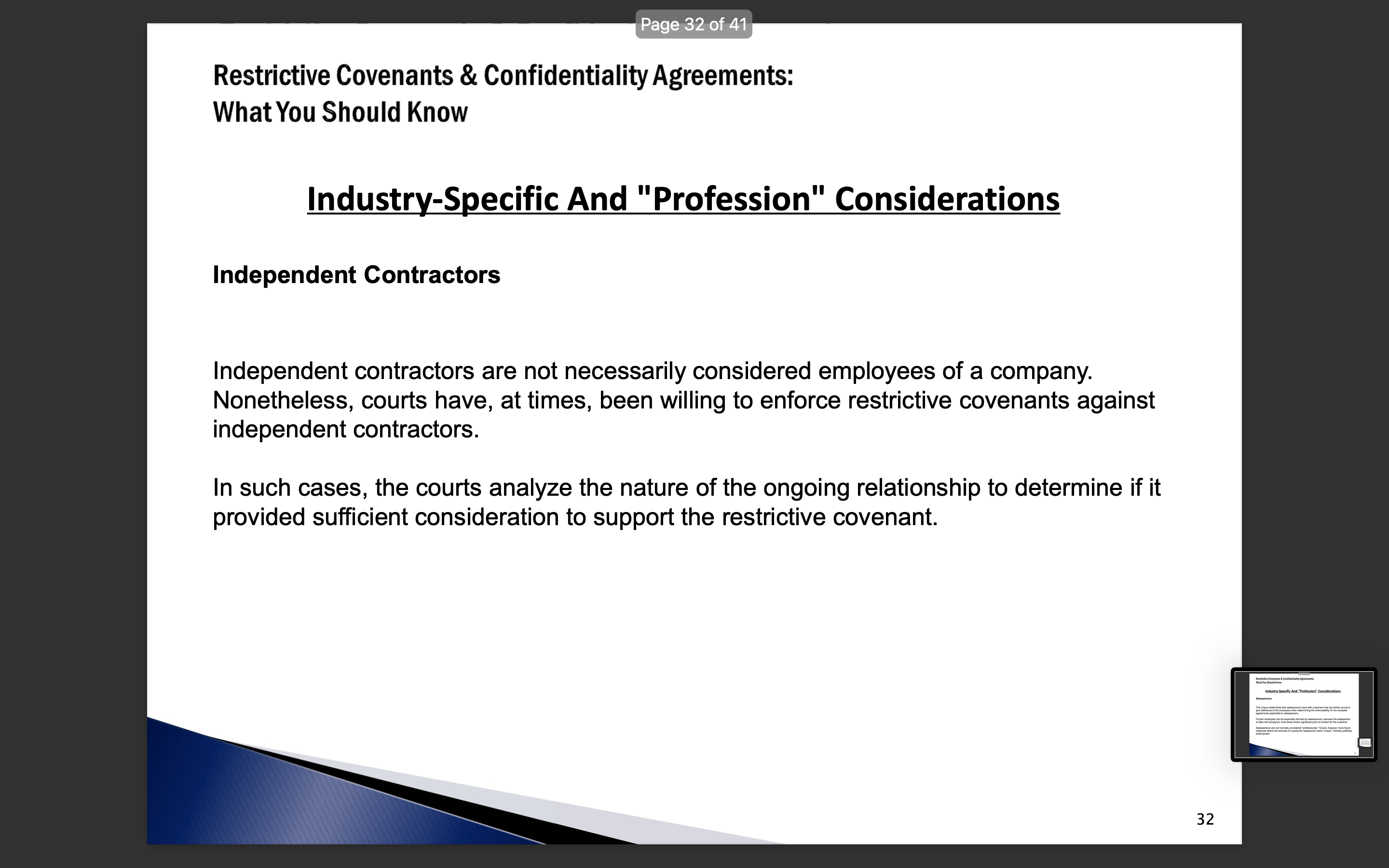
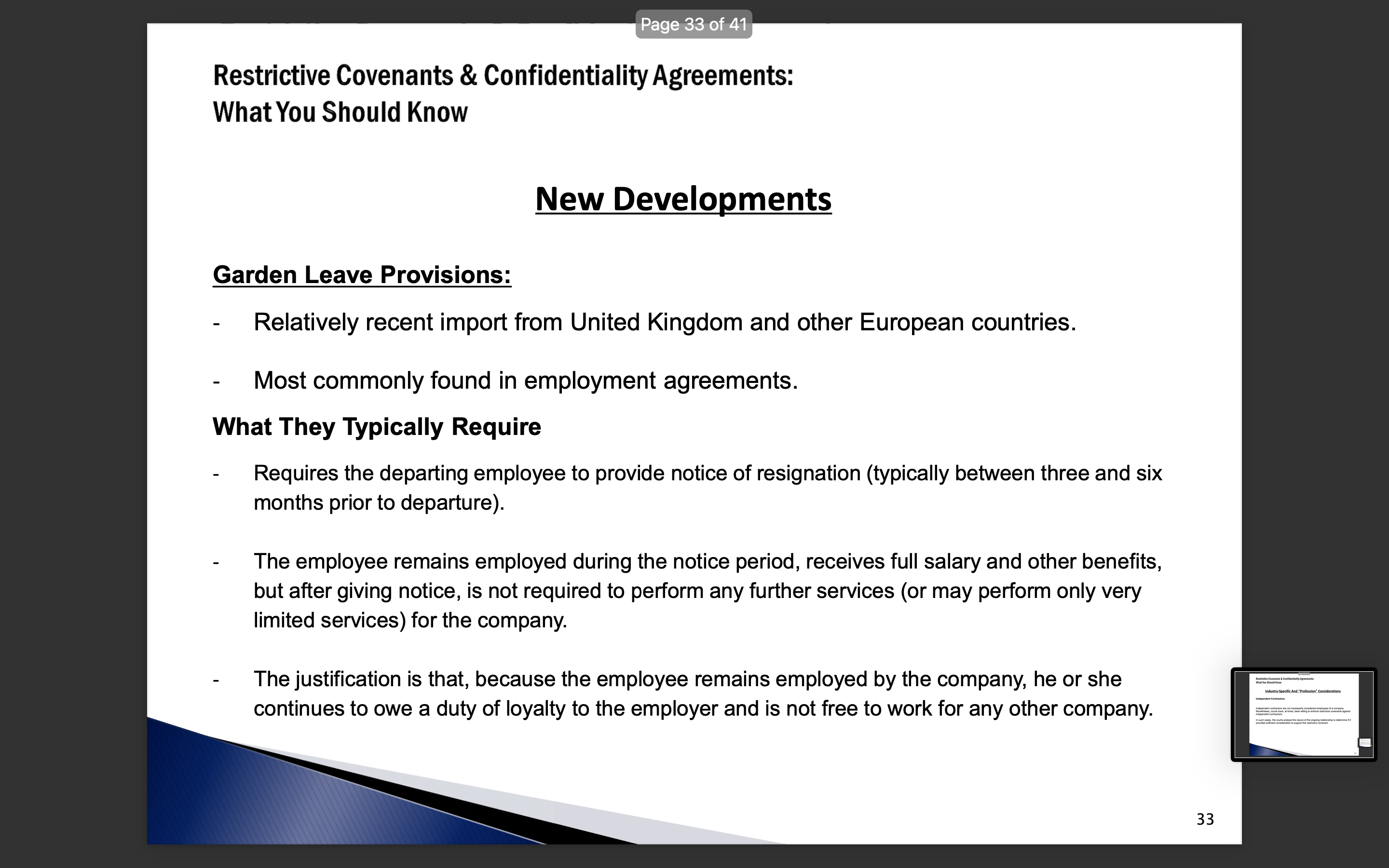
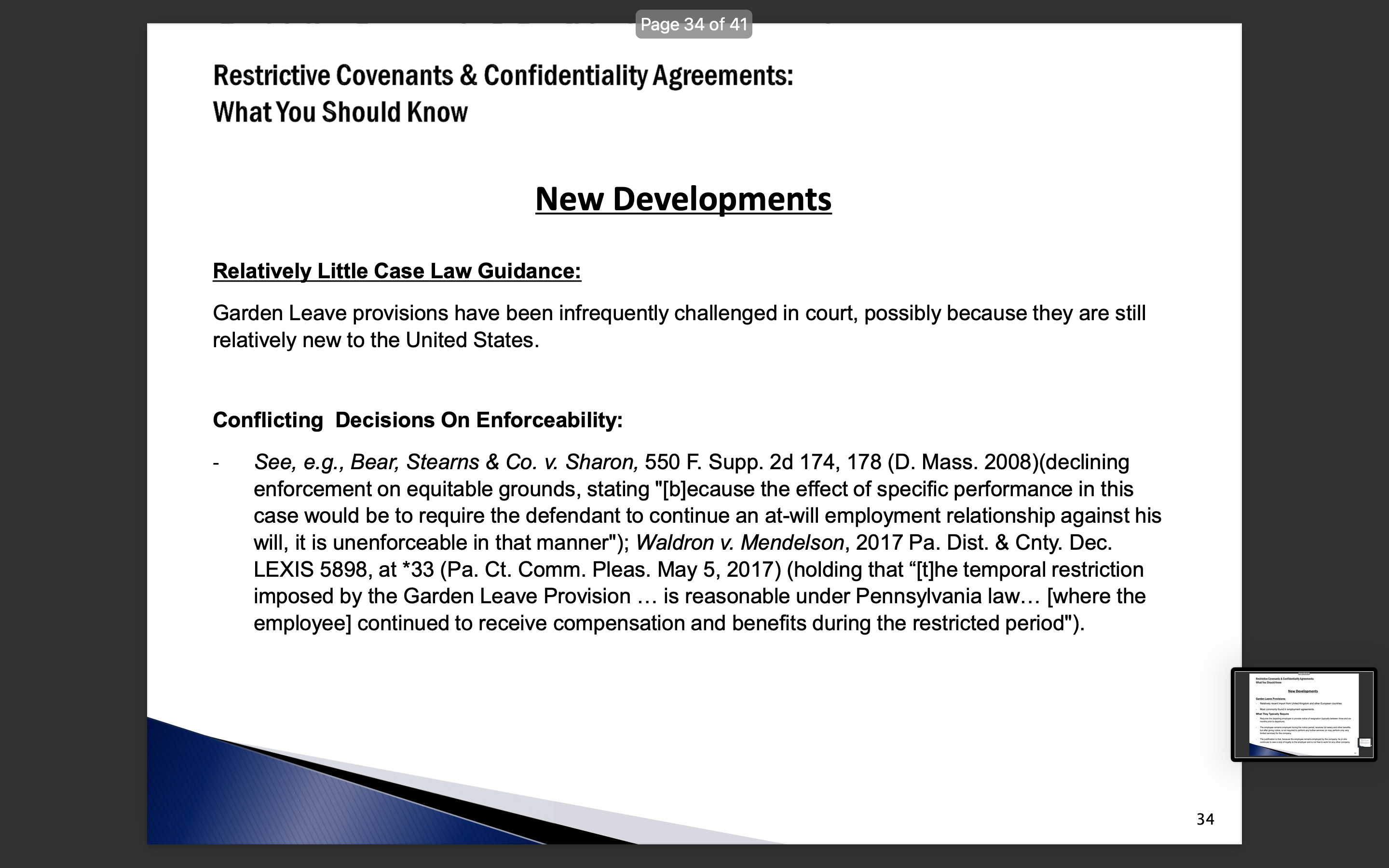
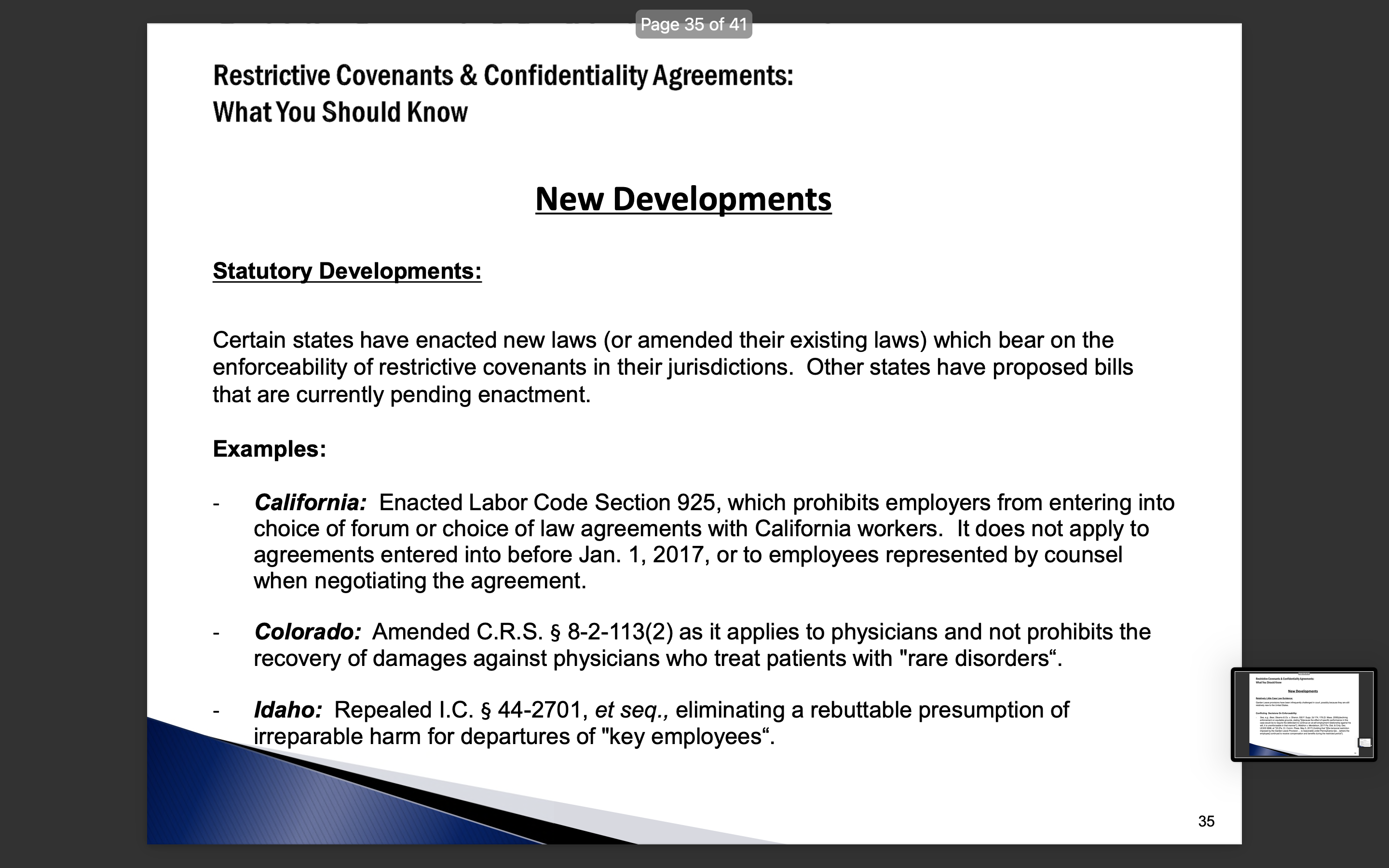
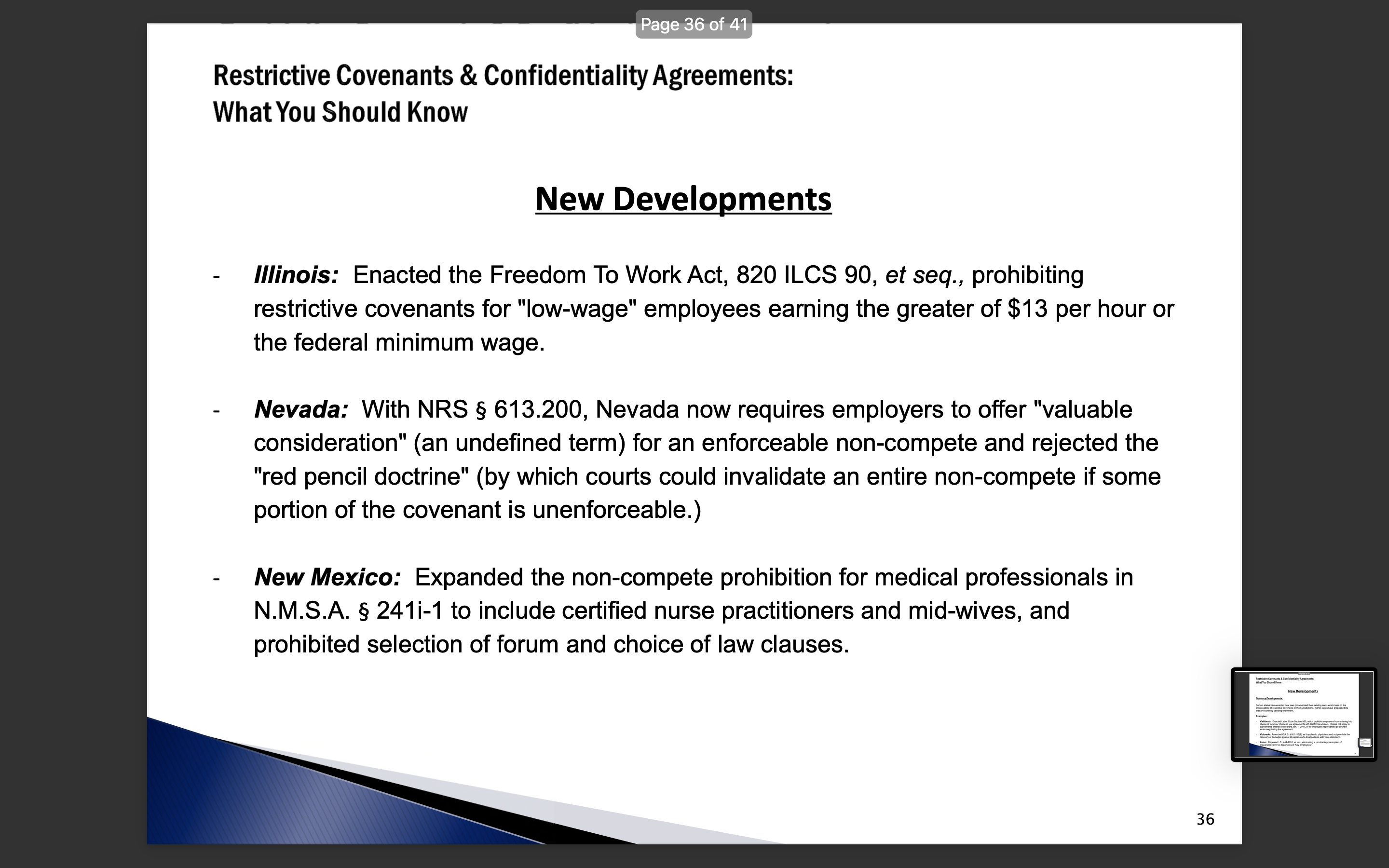
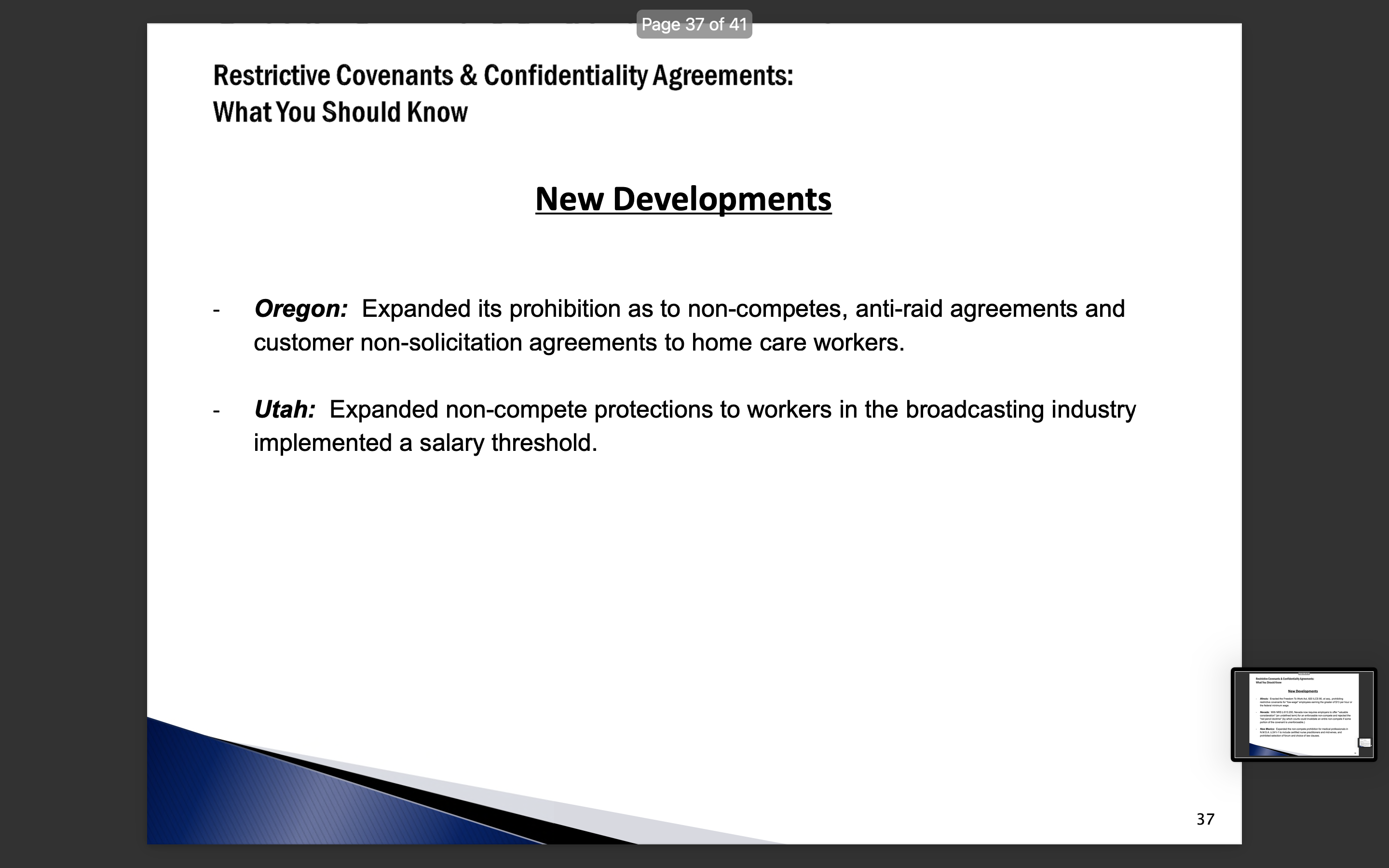
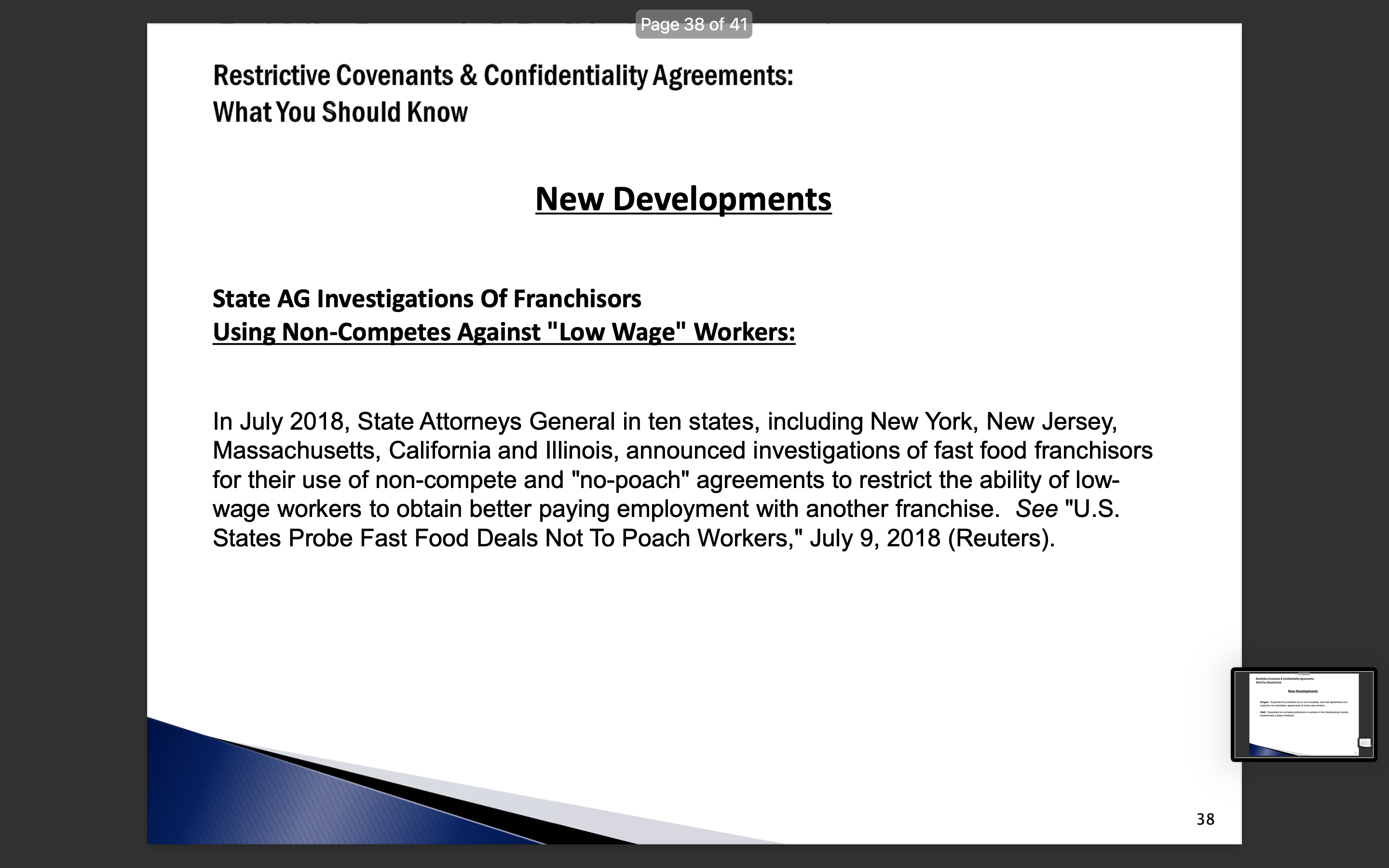
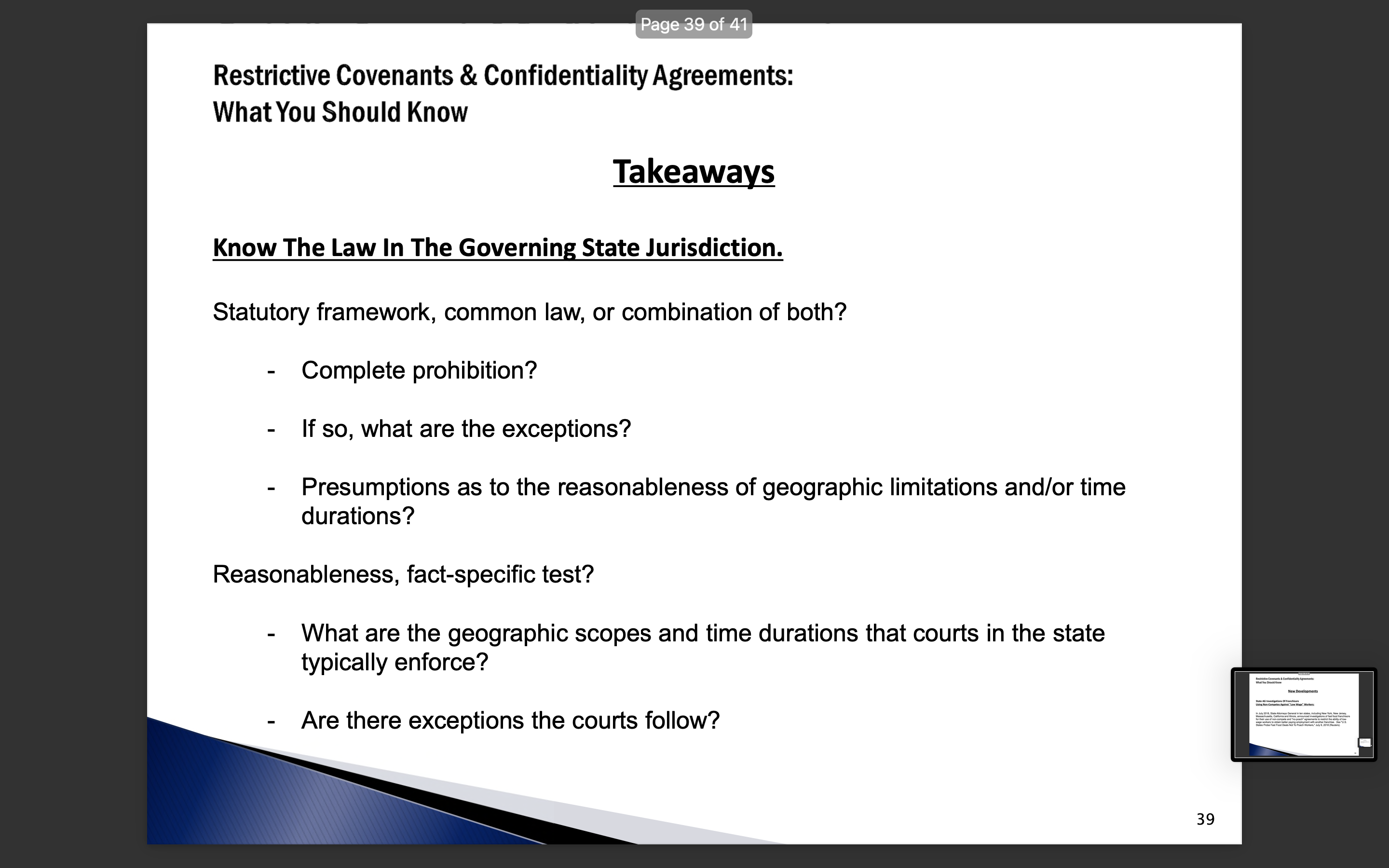
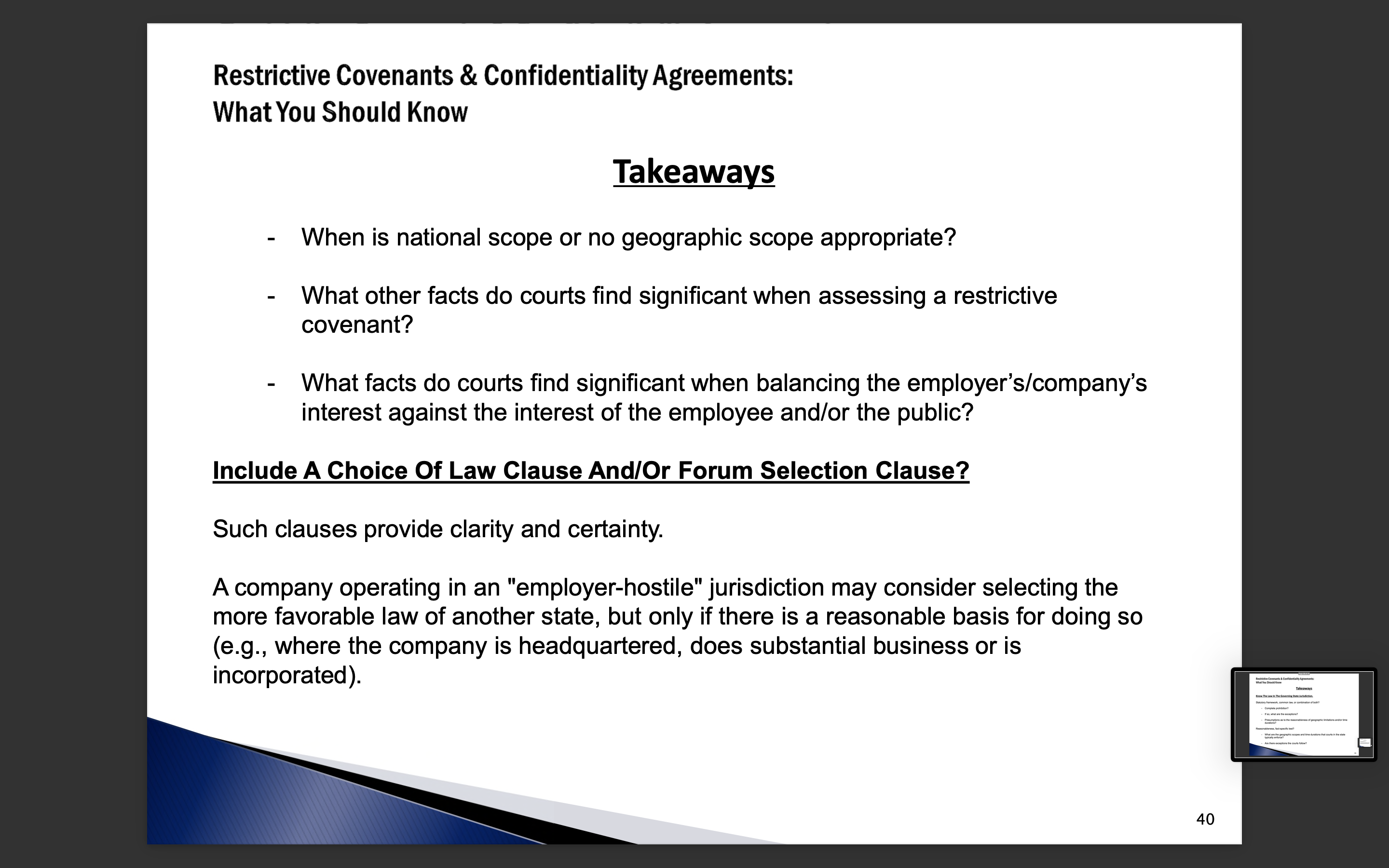
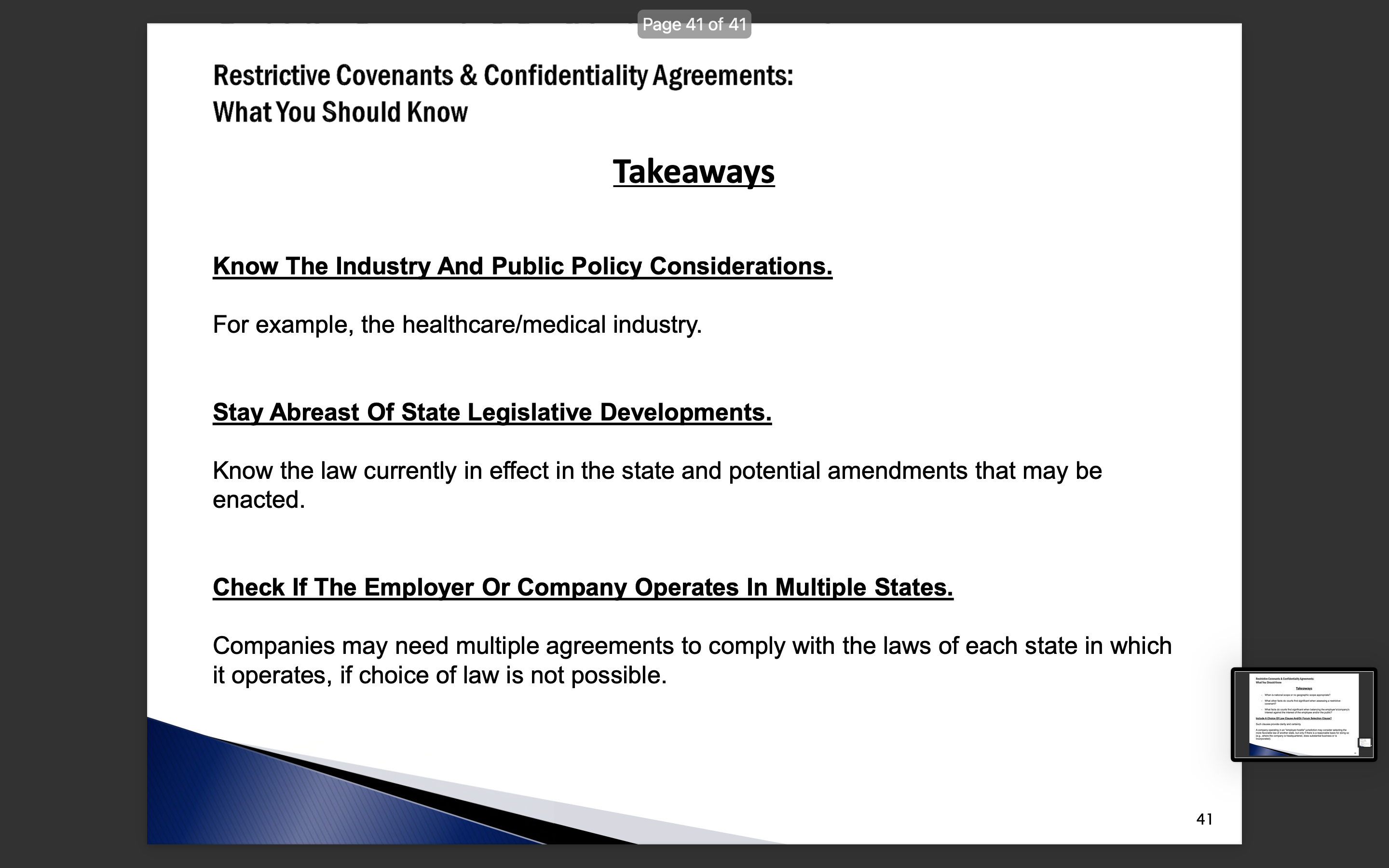
Restrictive Covenants & Confidentiality Agreements: What You Should Know By: Stephen L. Brodsky, Esq. Moritt Hock & Hamroff LLP sbrodsky@moritthock.com (516) 873-2000
Step by Step Solution
3.52 Rating (149 Votes )
There are 3 Steps involved in it
Step: 1
In my opinion Pennsylvania should follow the Reasonableness Rule rather than adopting a blanket prohibition on noncompete agreements like California H...
Get Instant Access to Expert-Tailored Solutions
See step-by-step solutions with expert insights and AI powered tools for academic success
Step: 2

Step: 3

Ace Your Homework with AI
Get the answers you need in no time with our AI-driven, step-by-step assistance
Get Started


